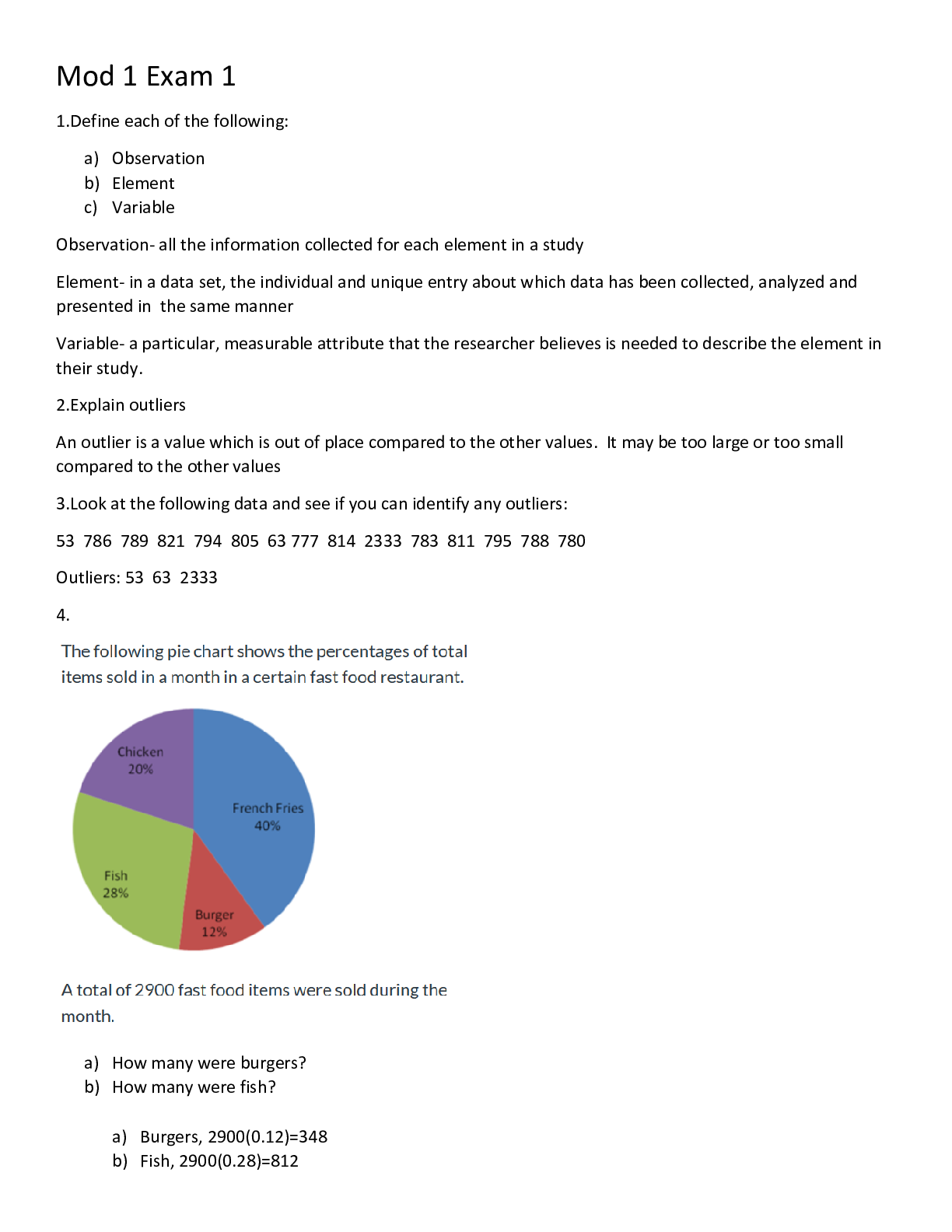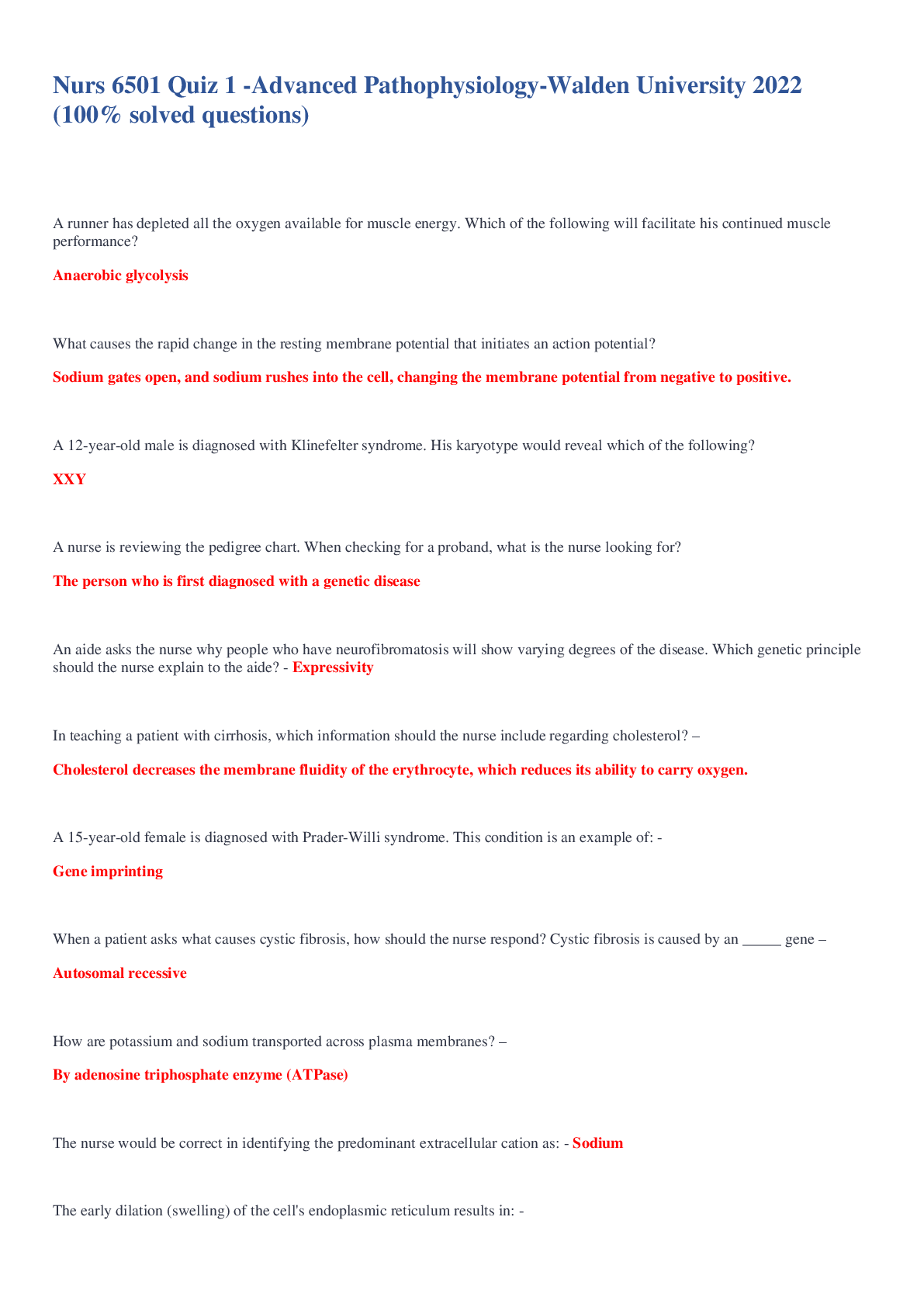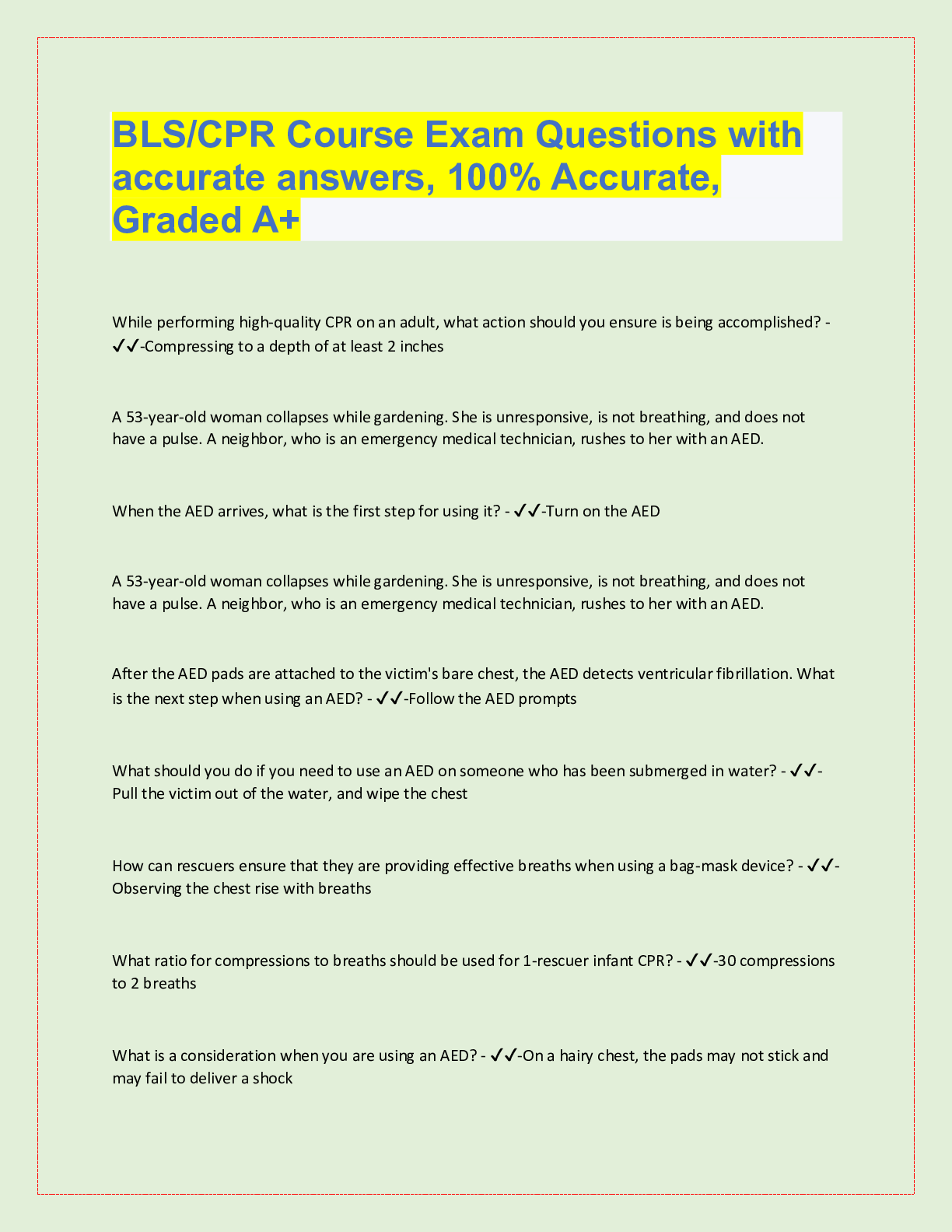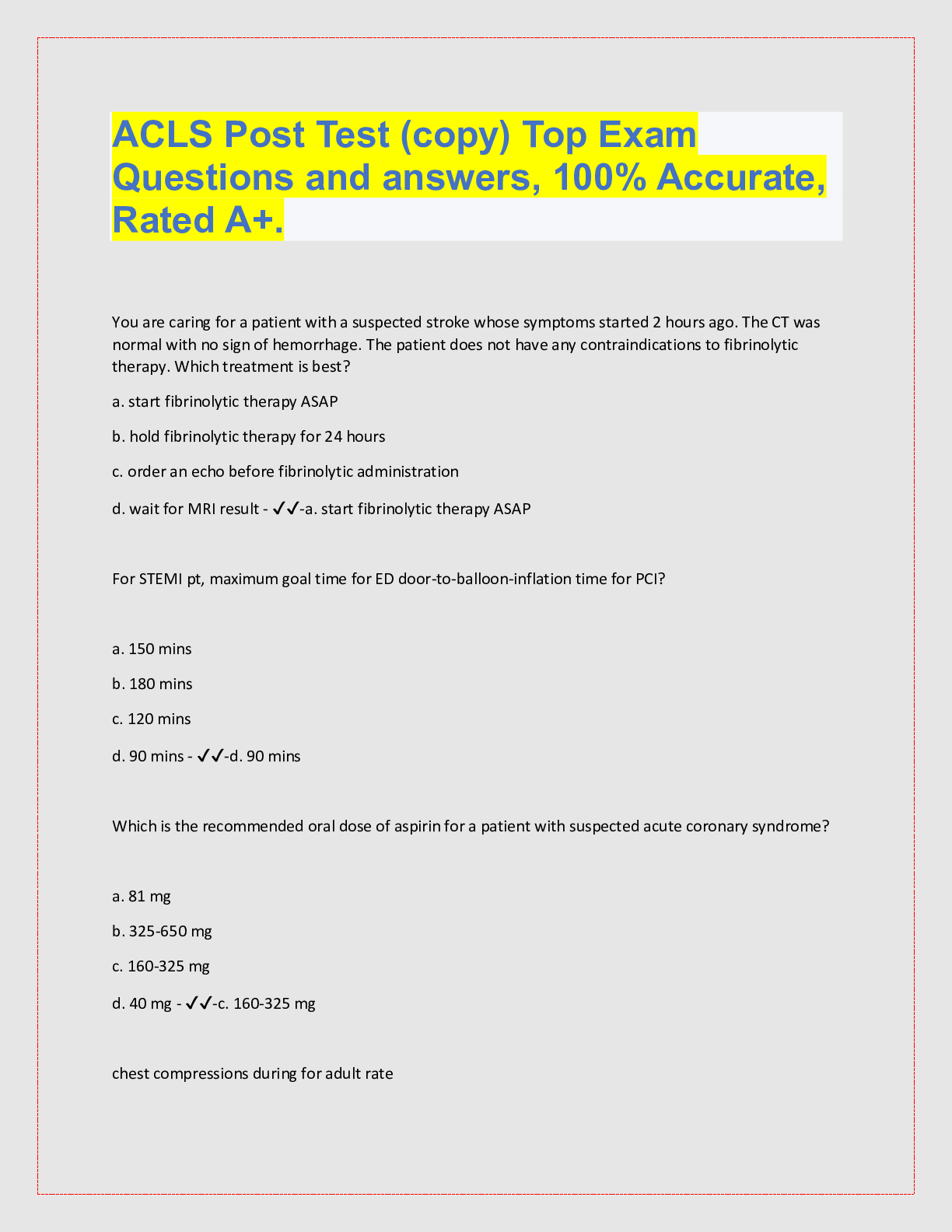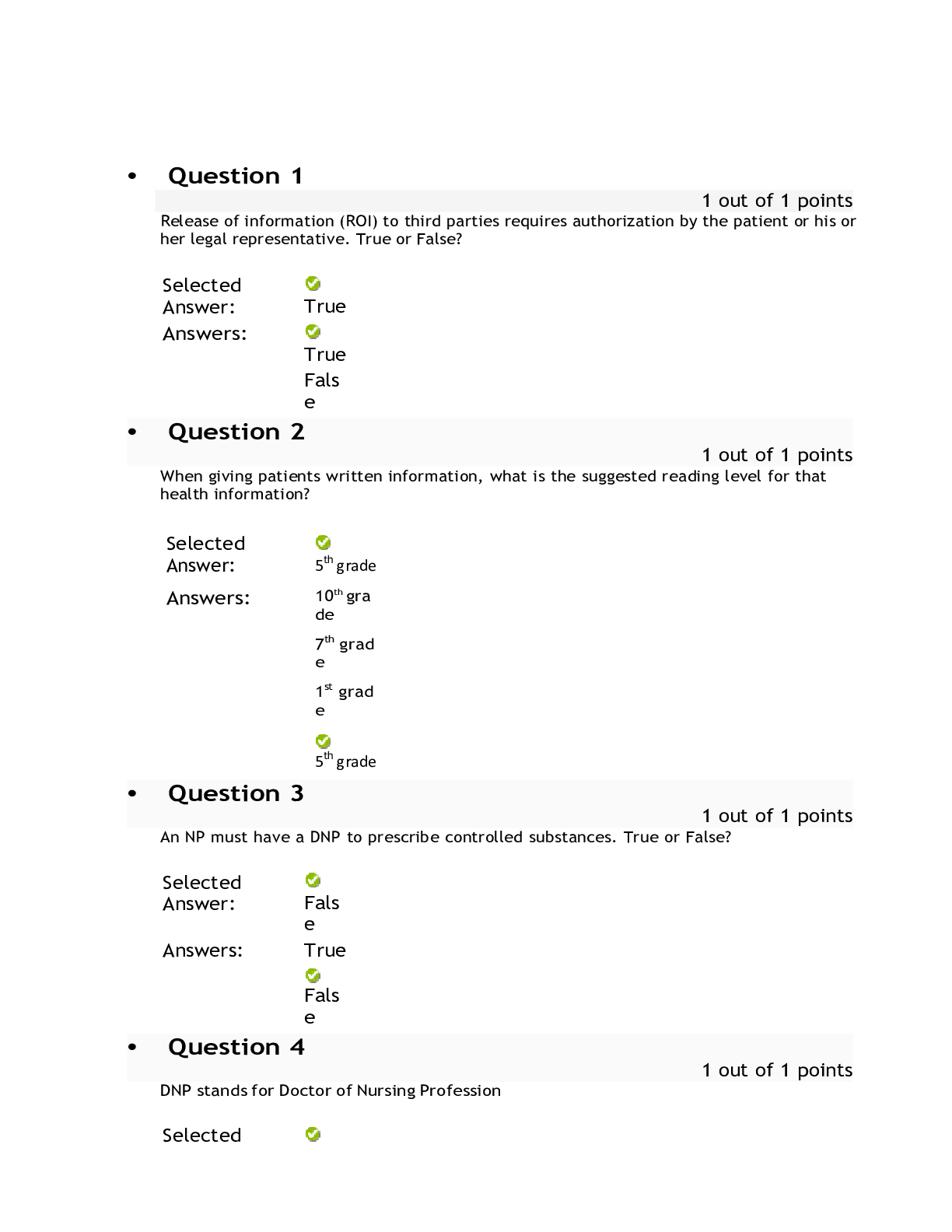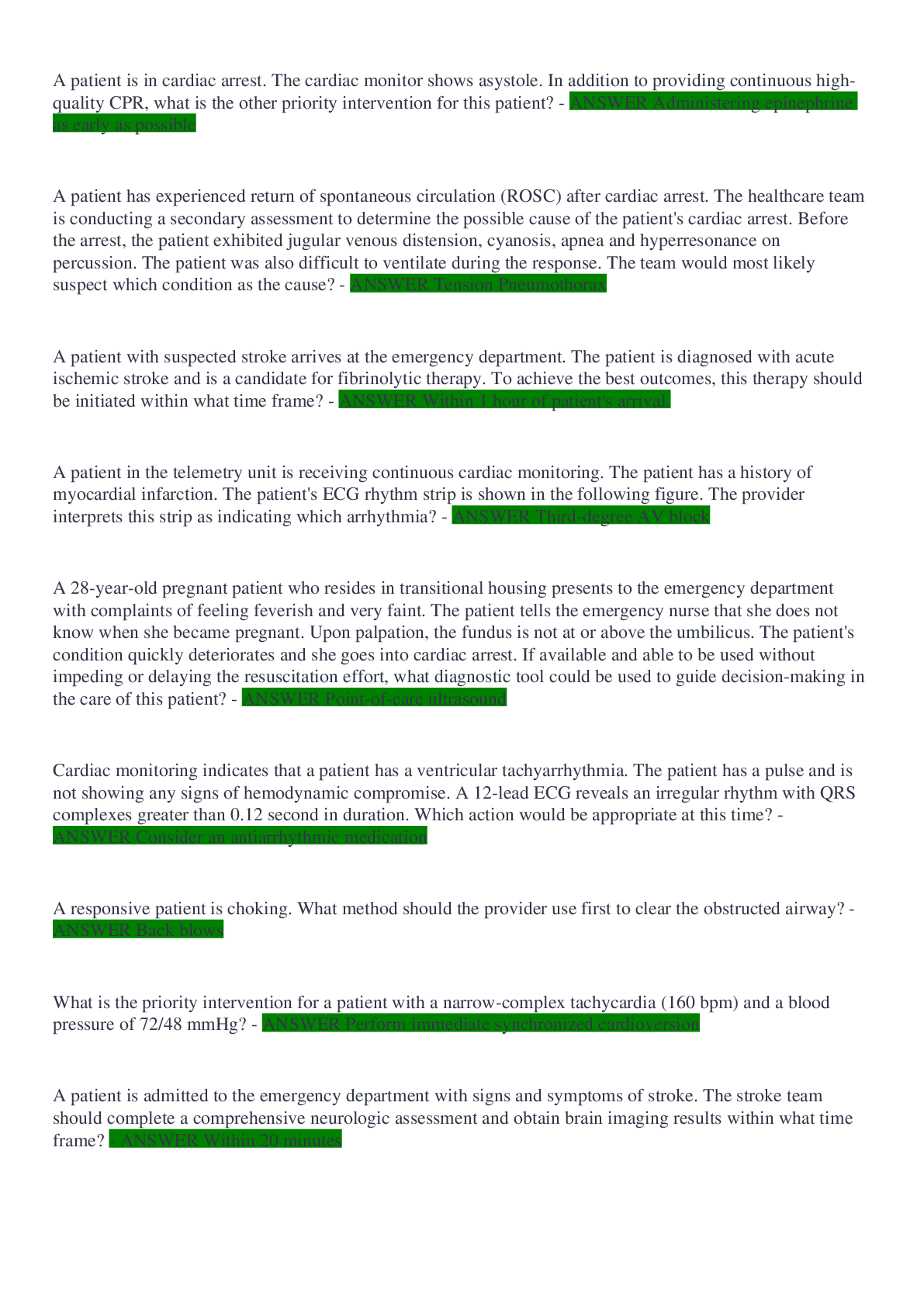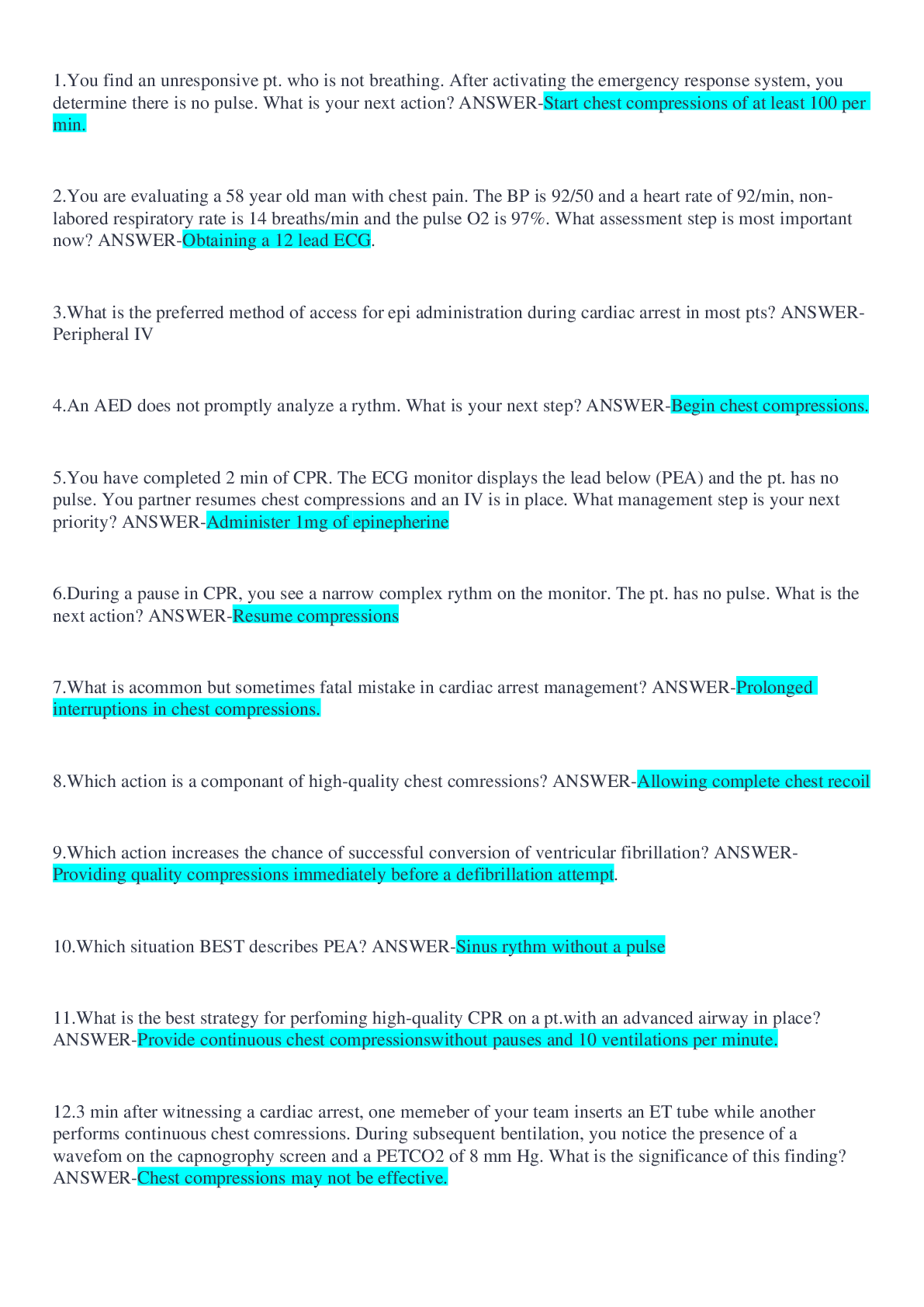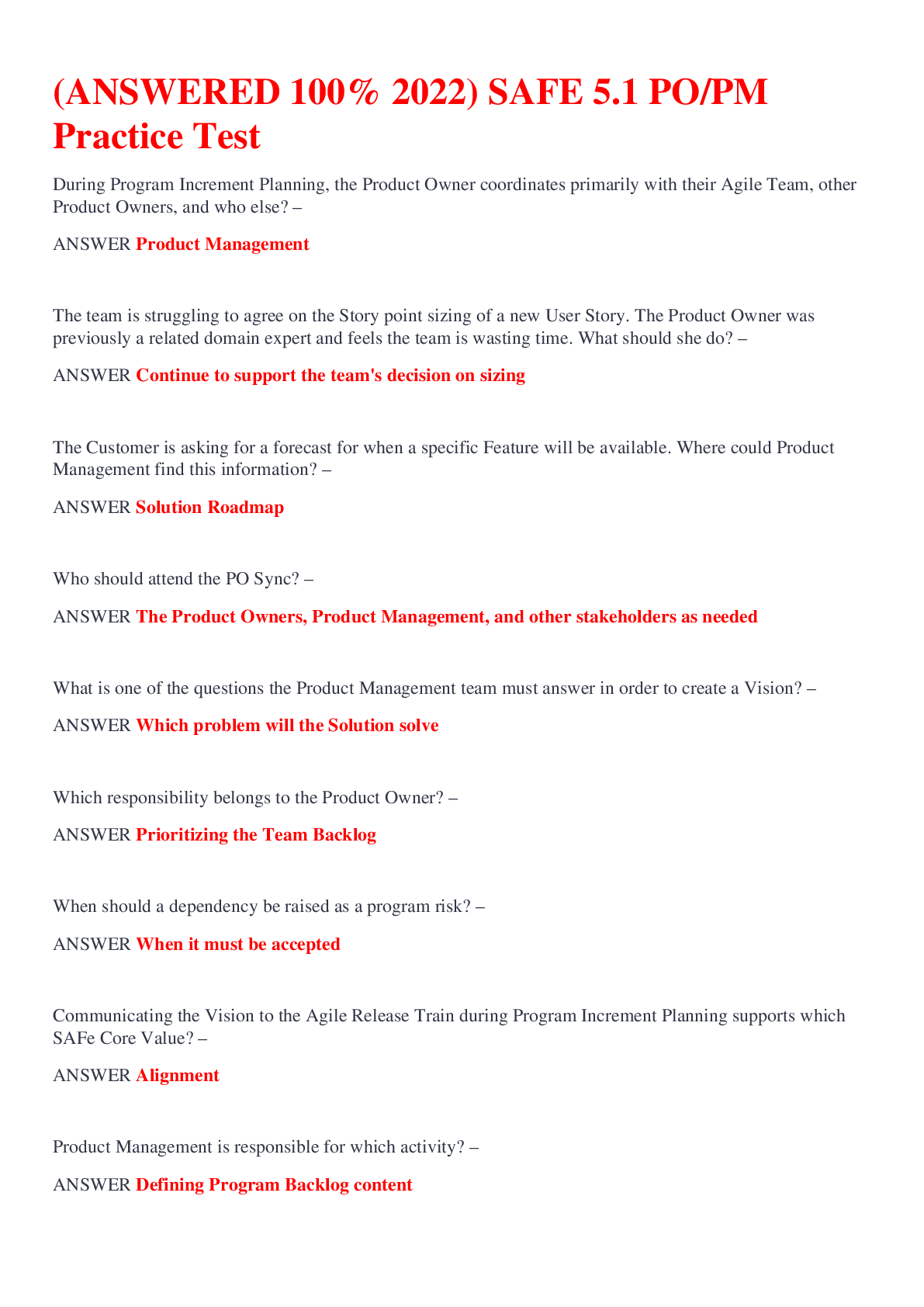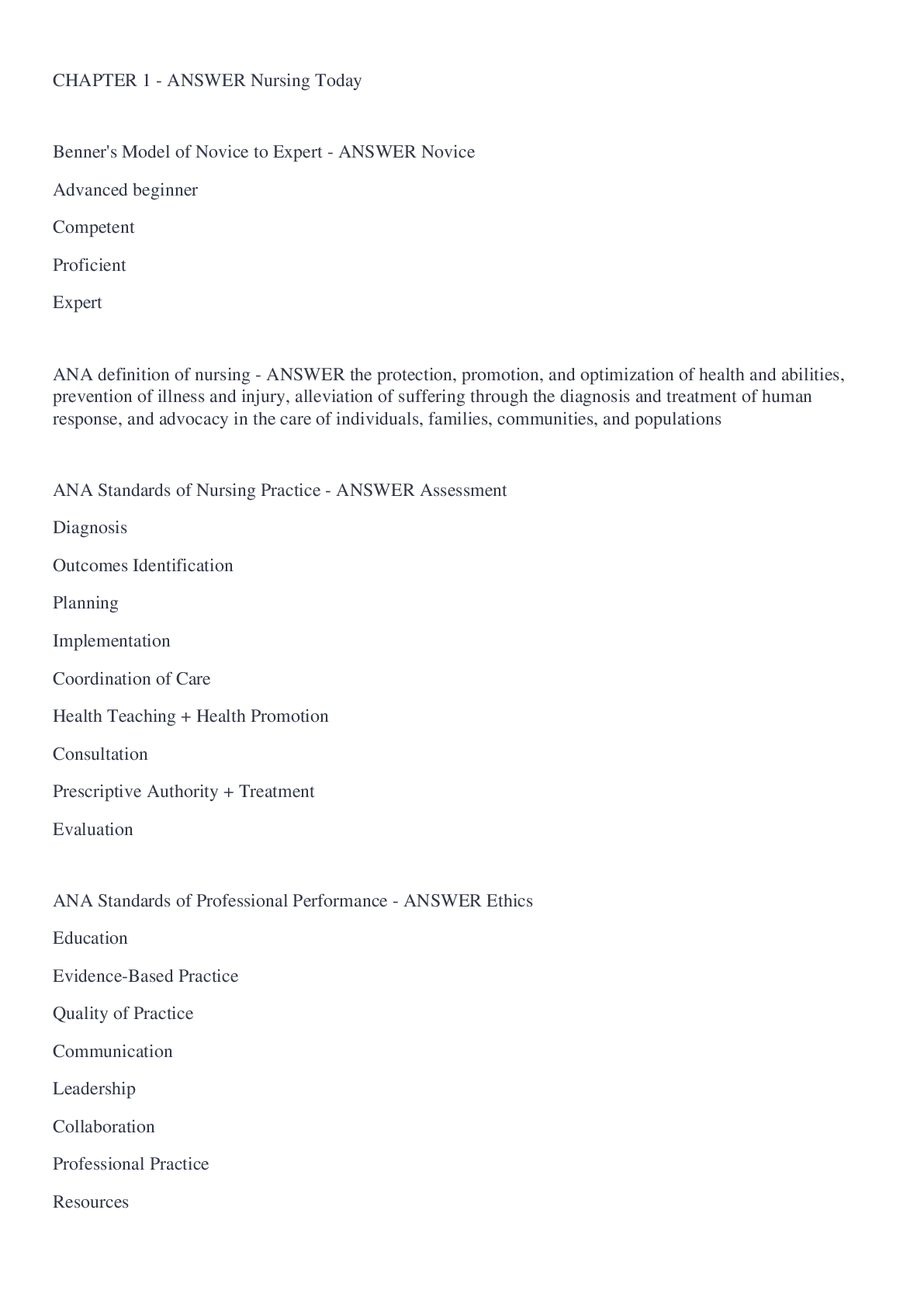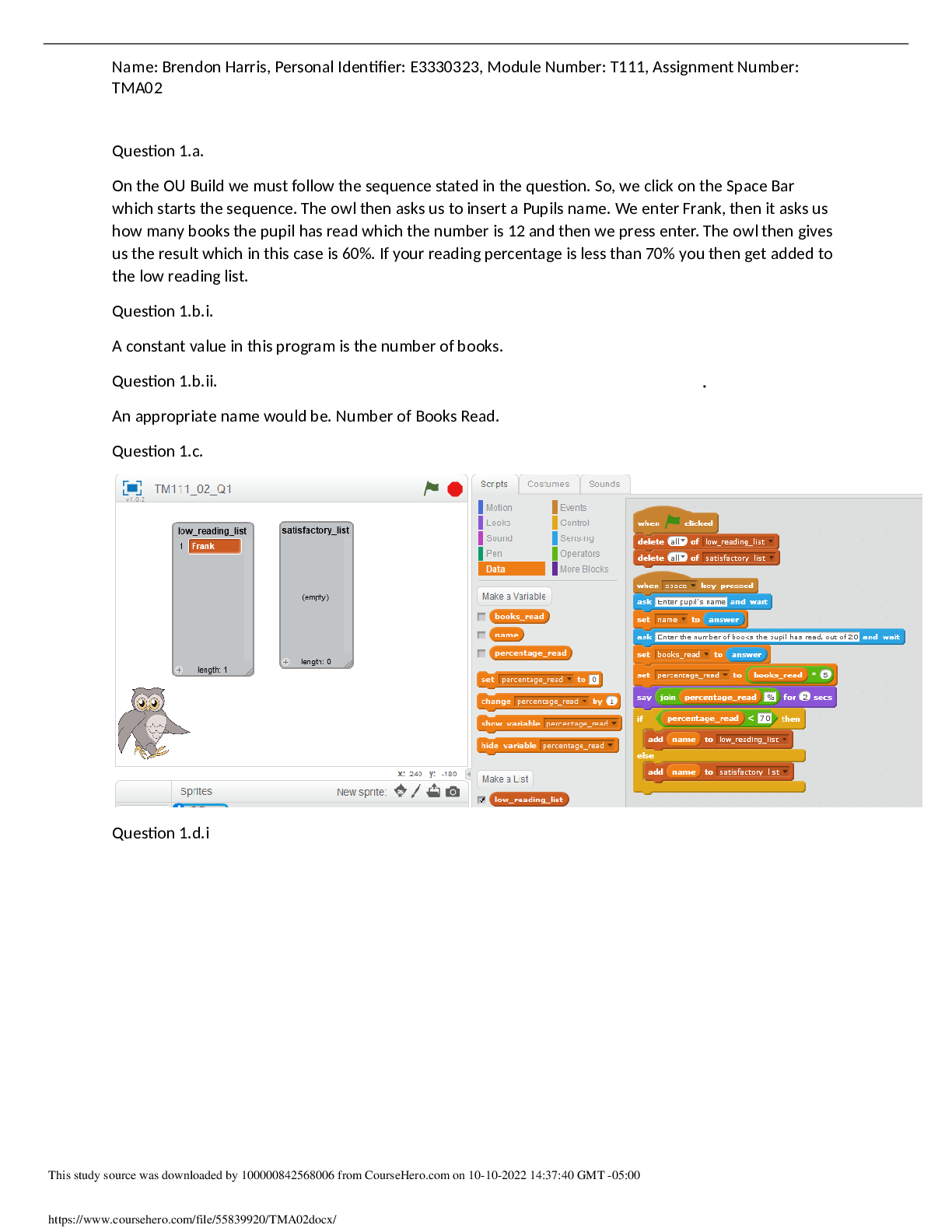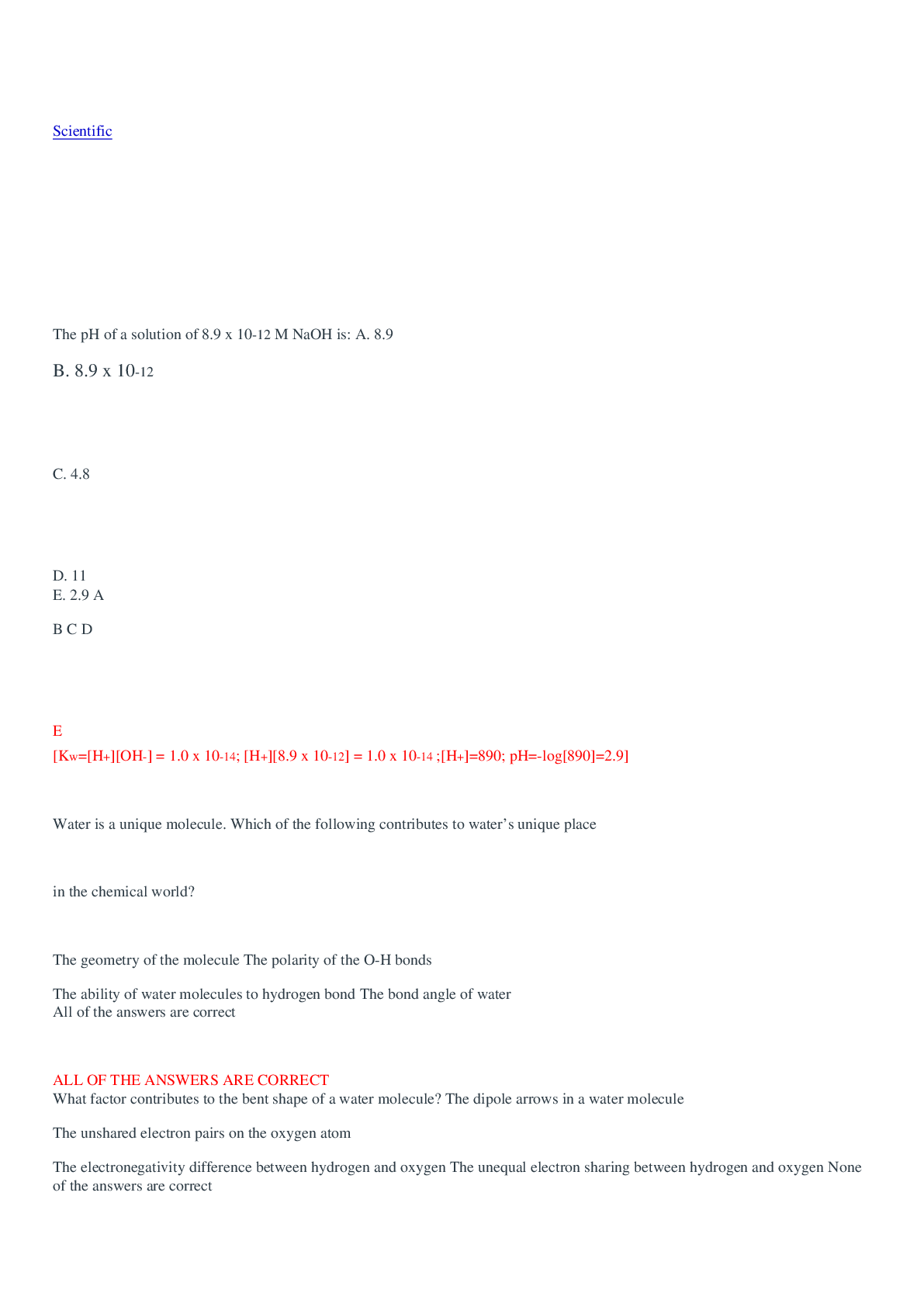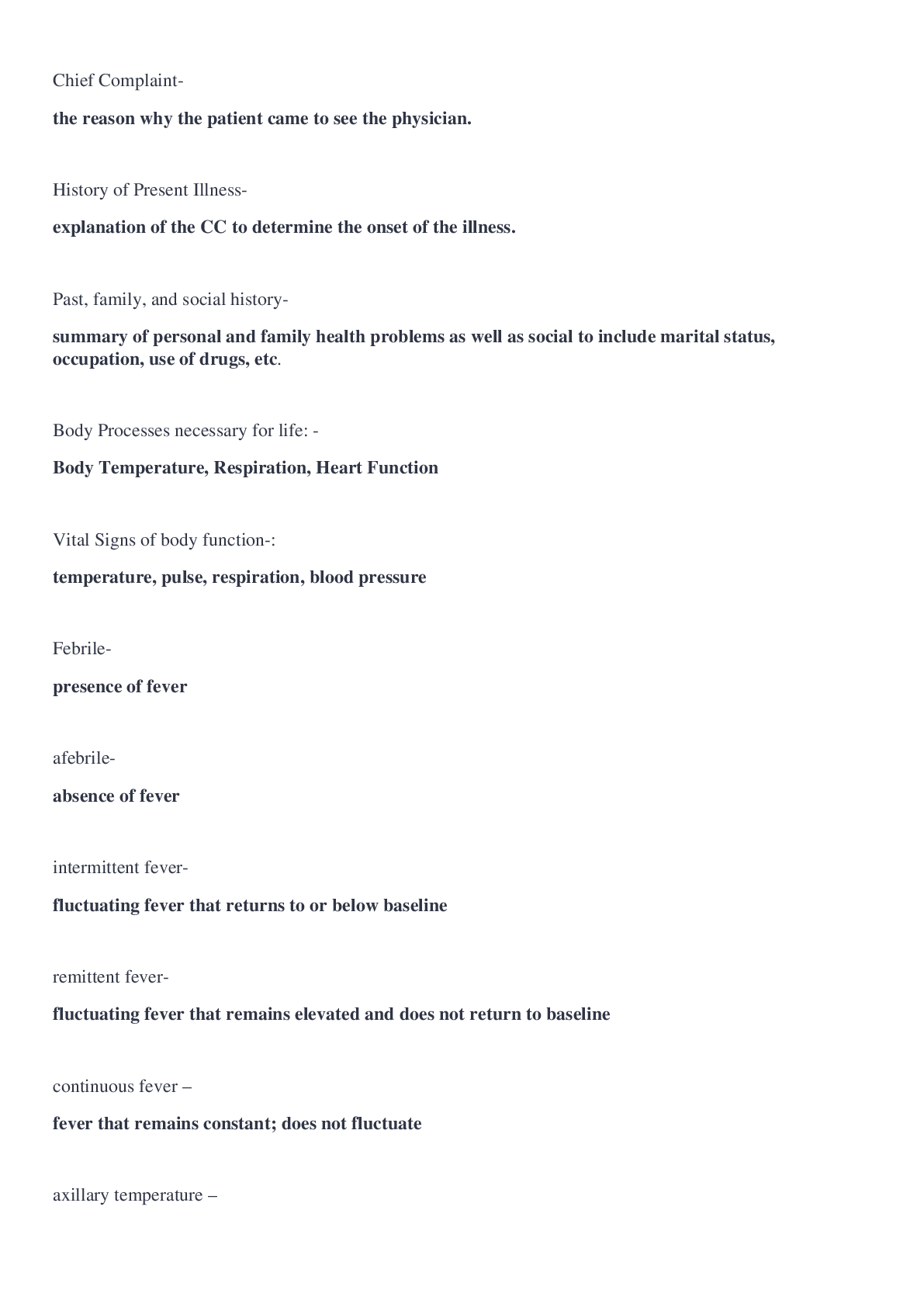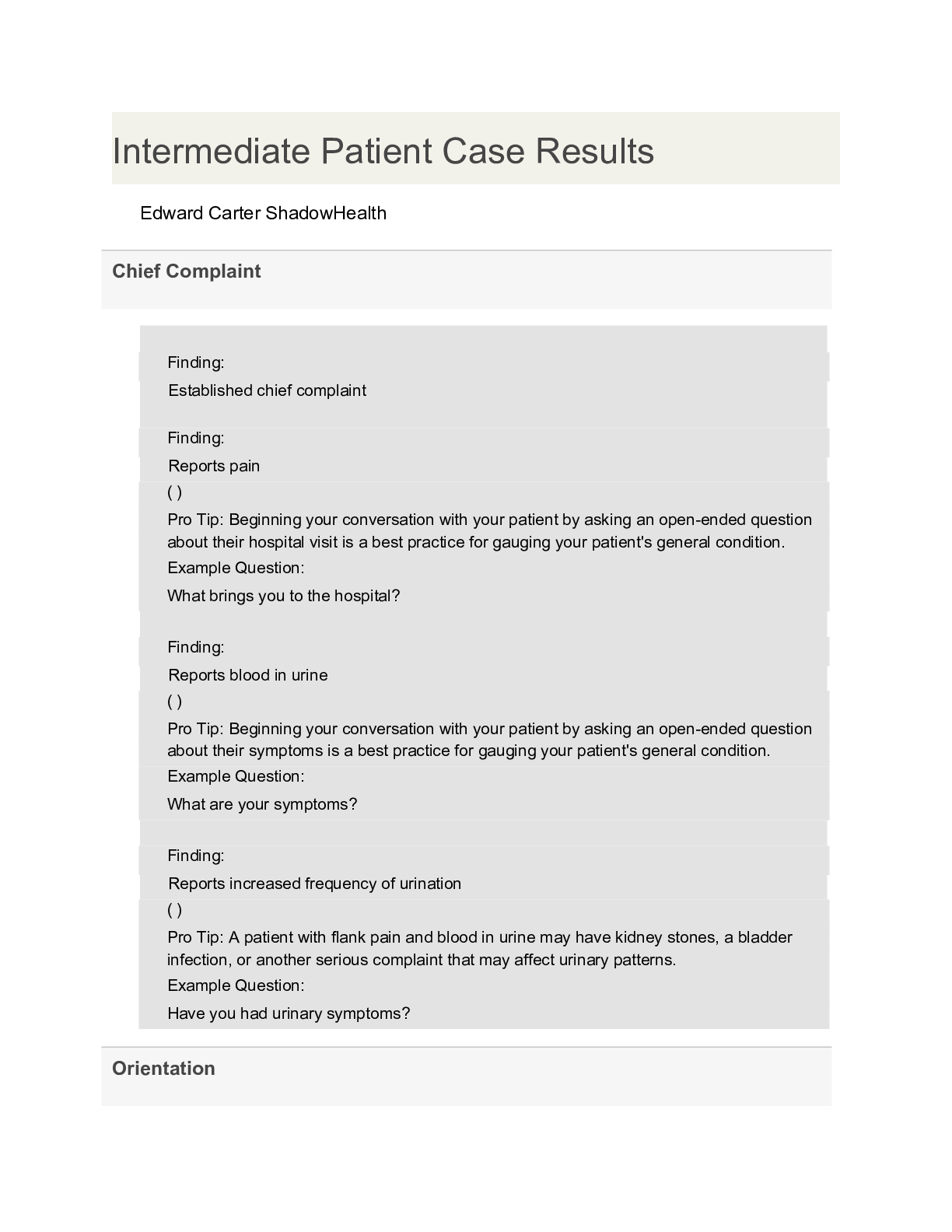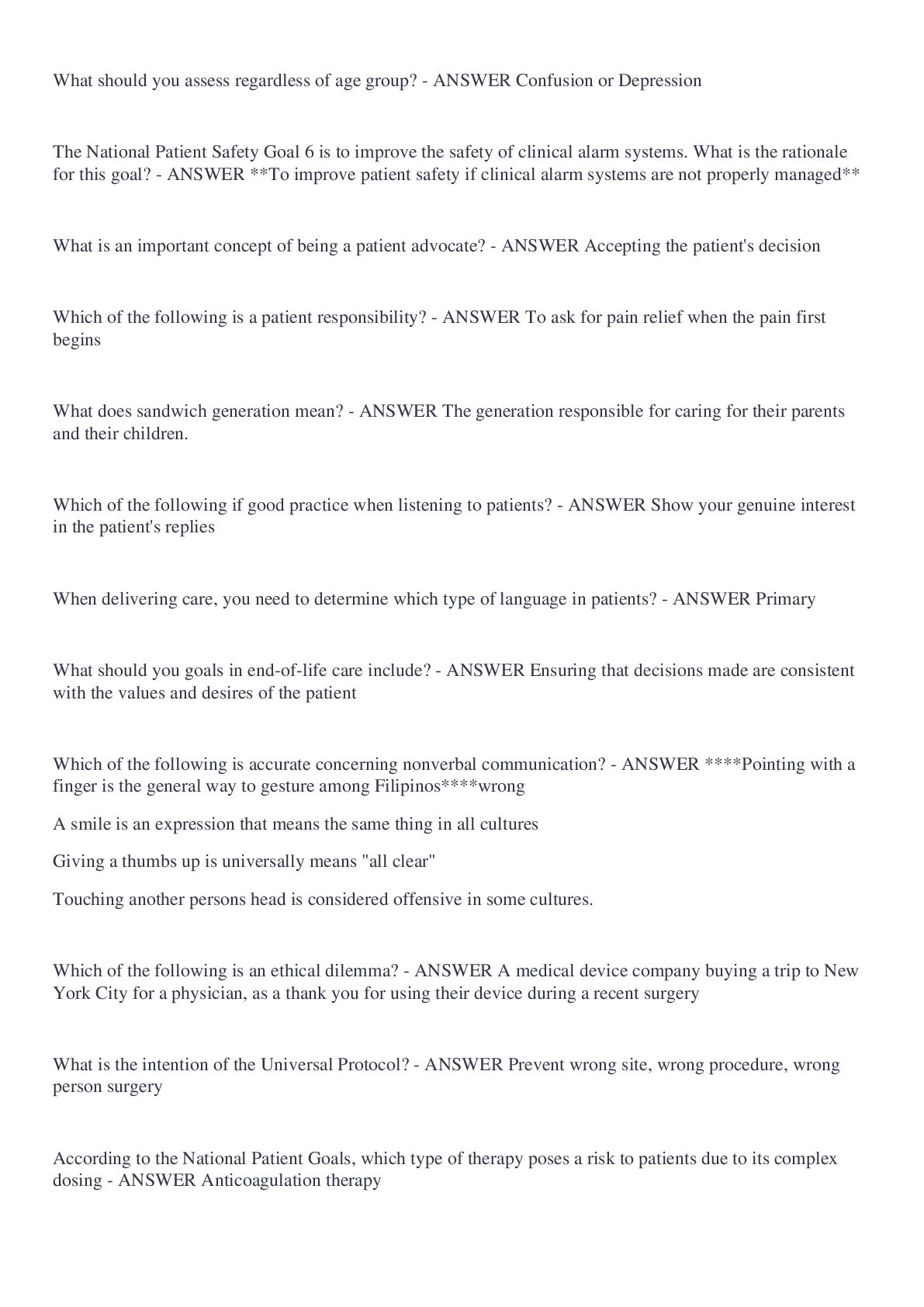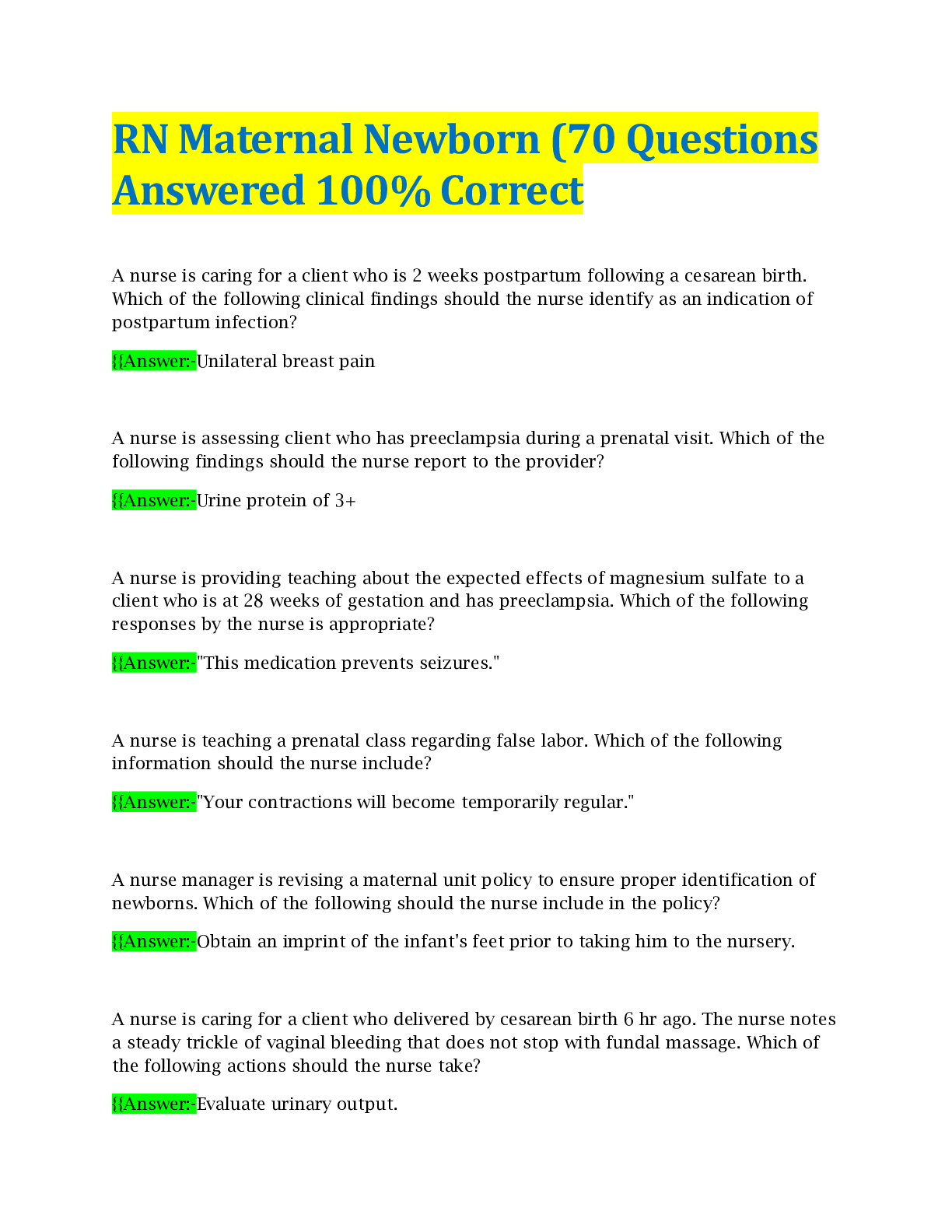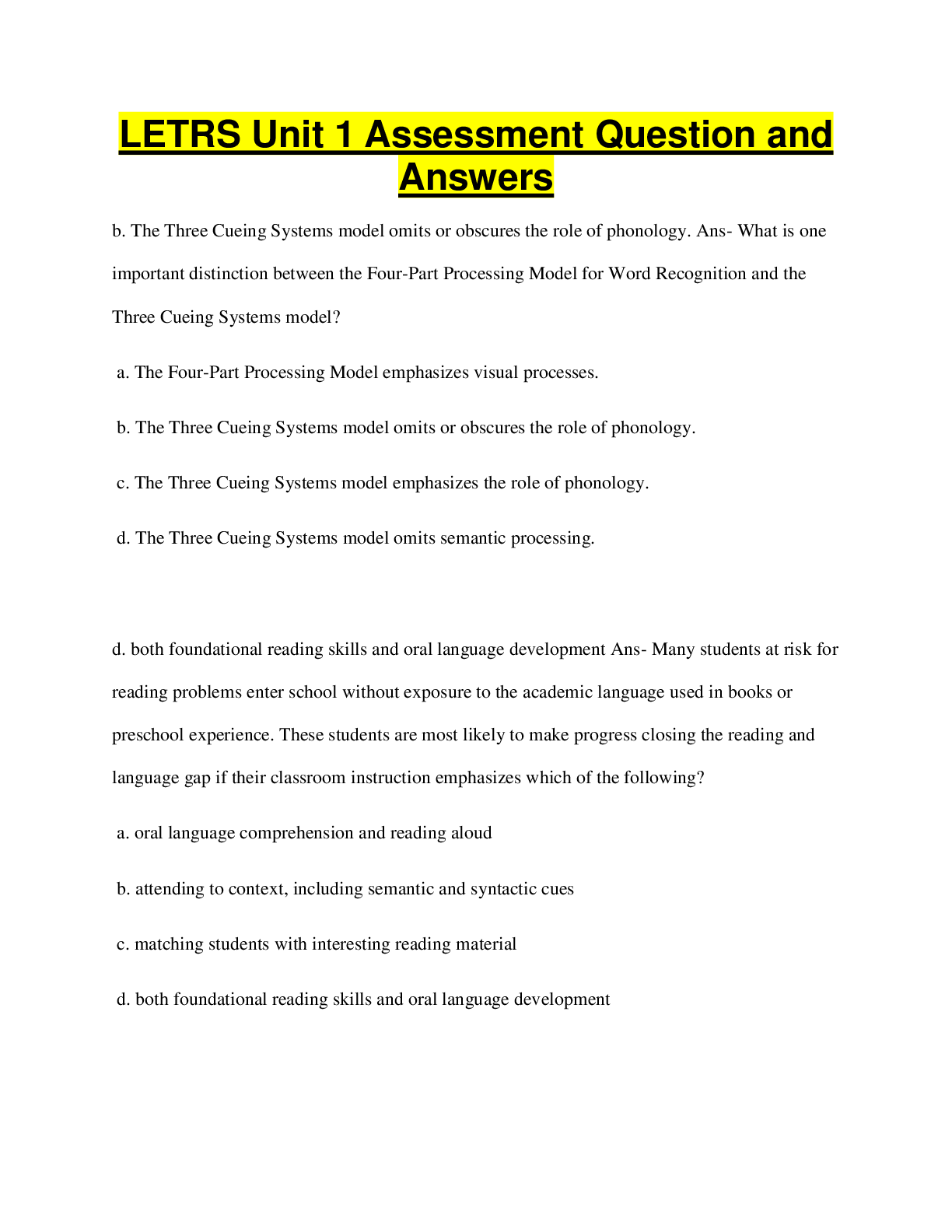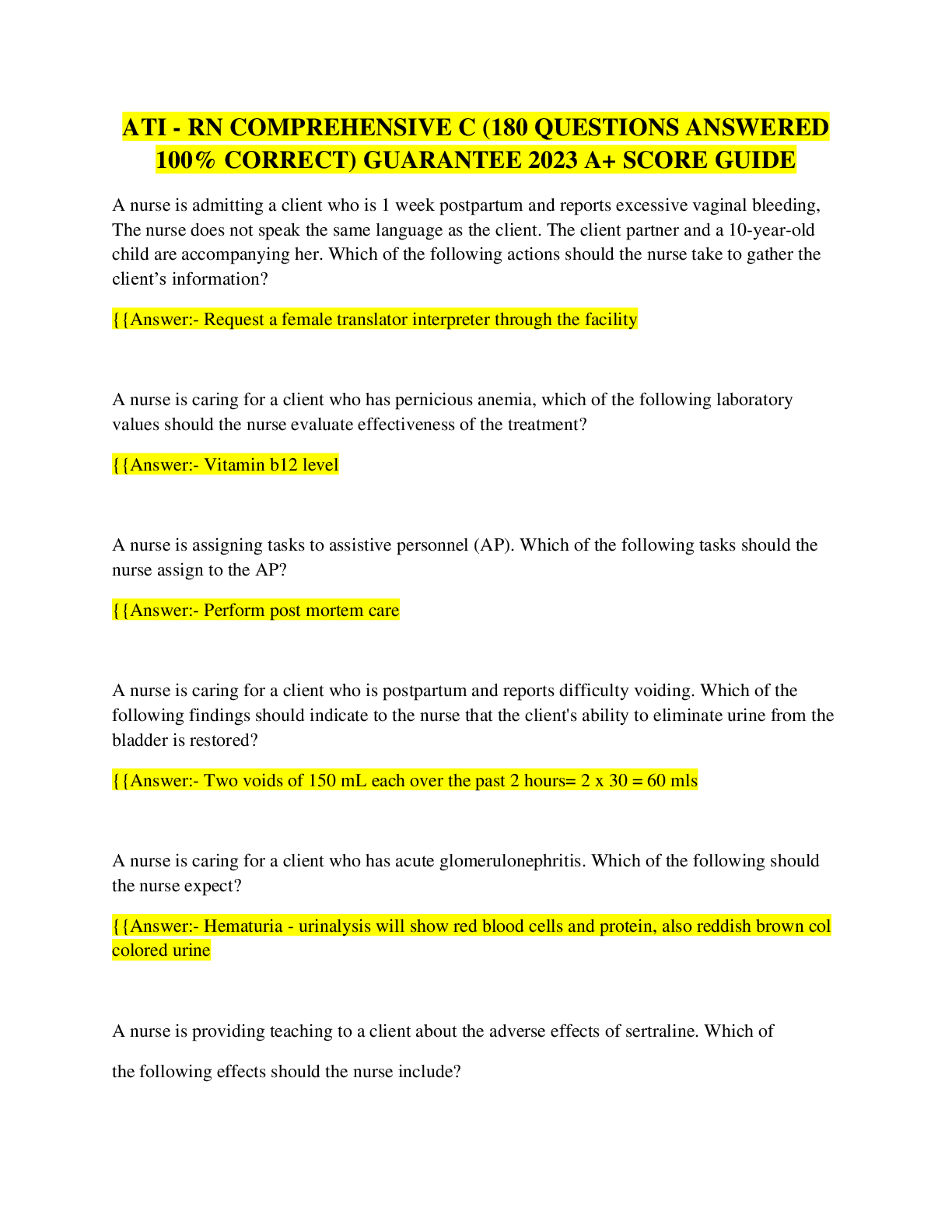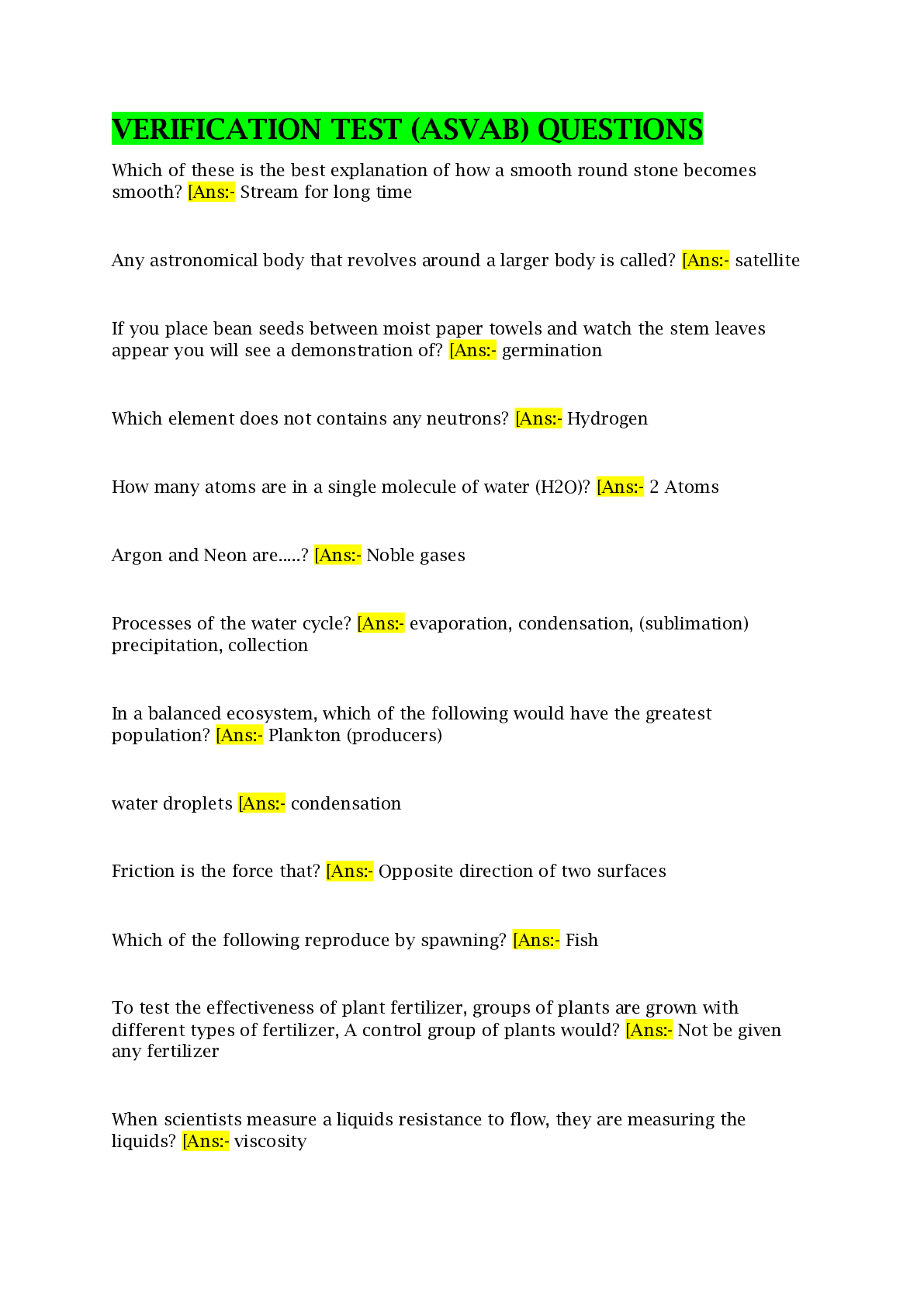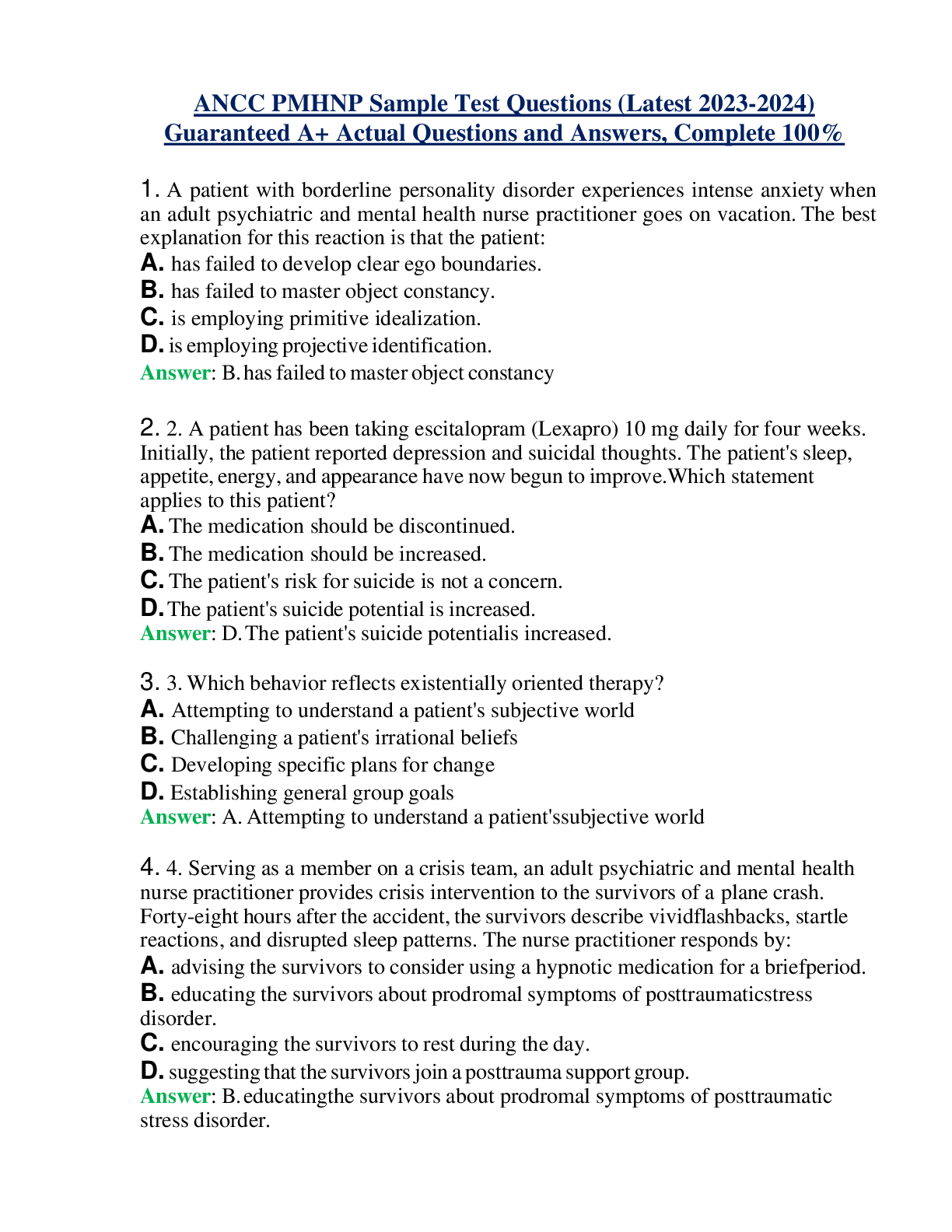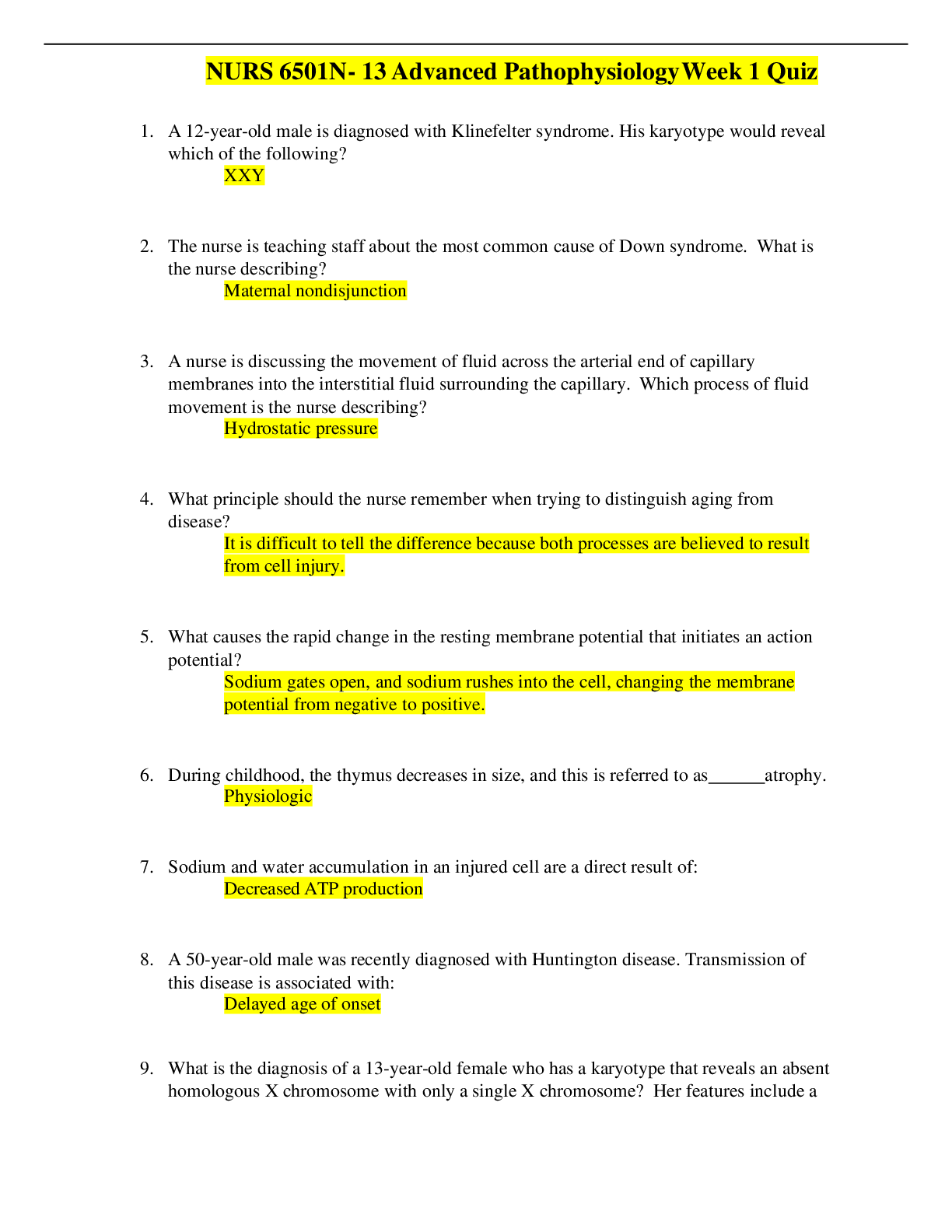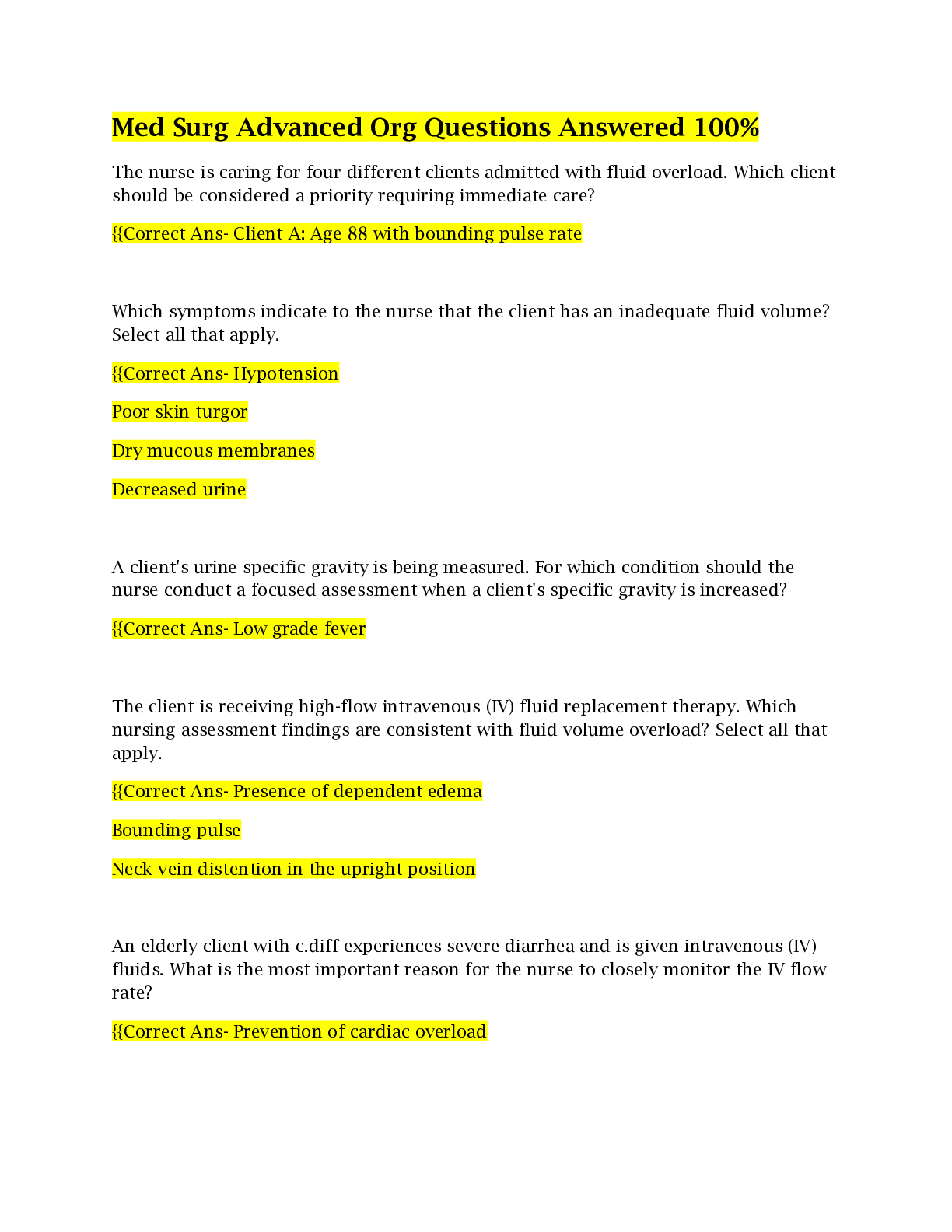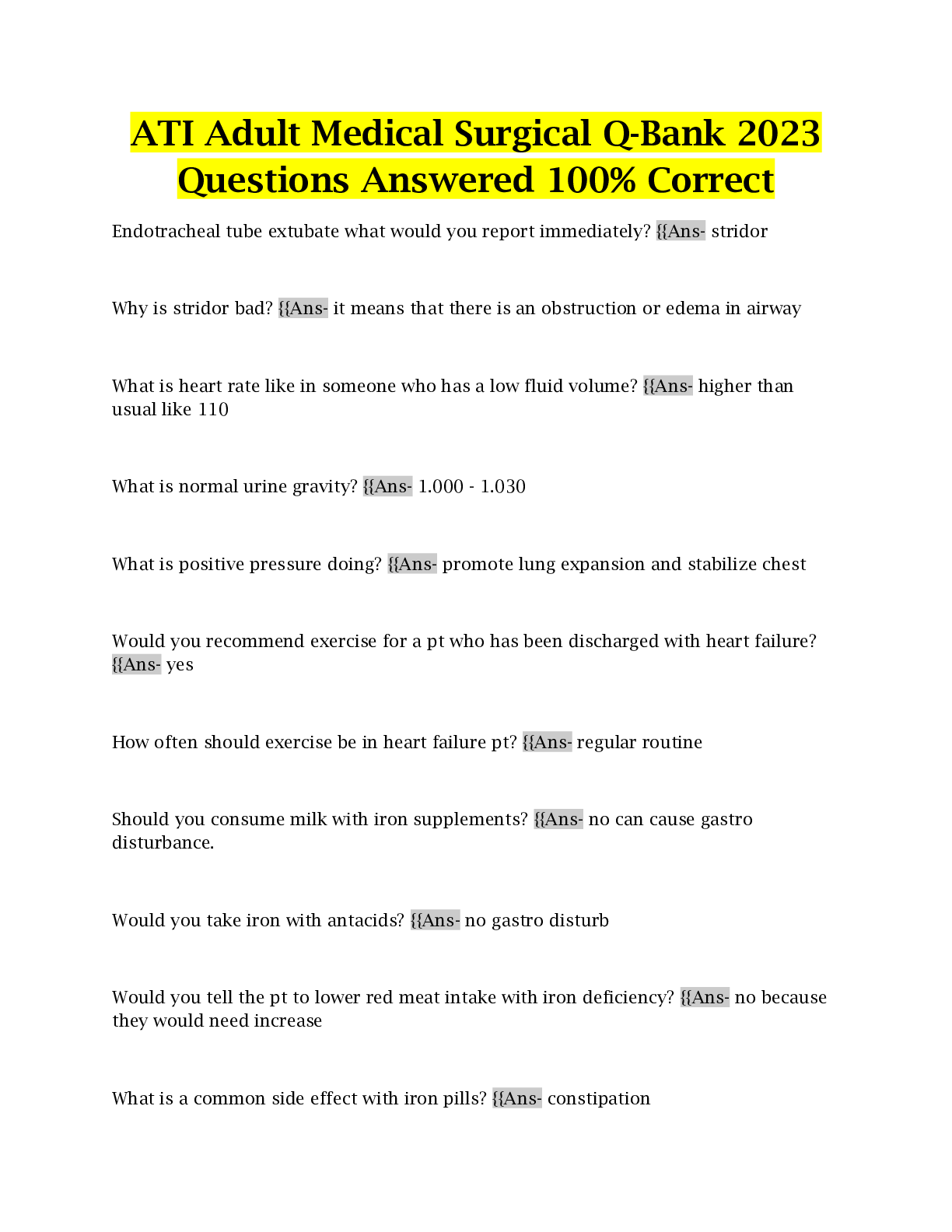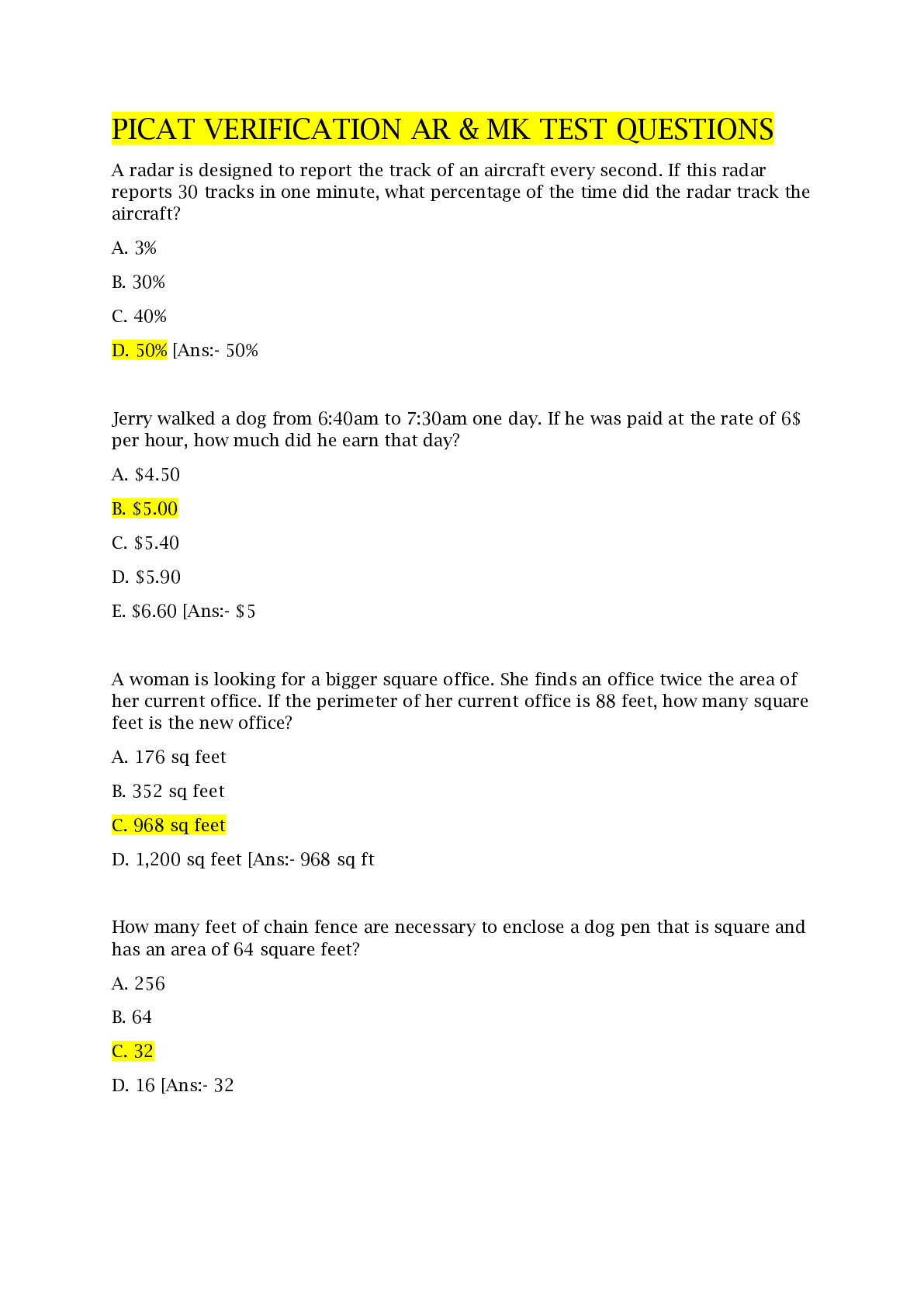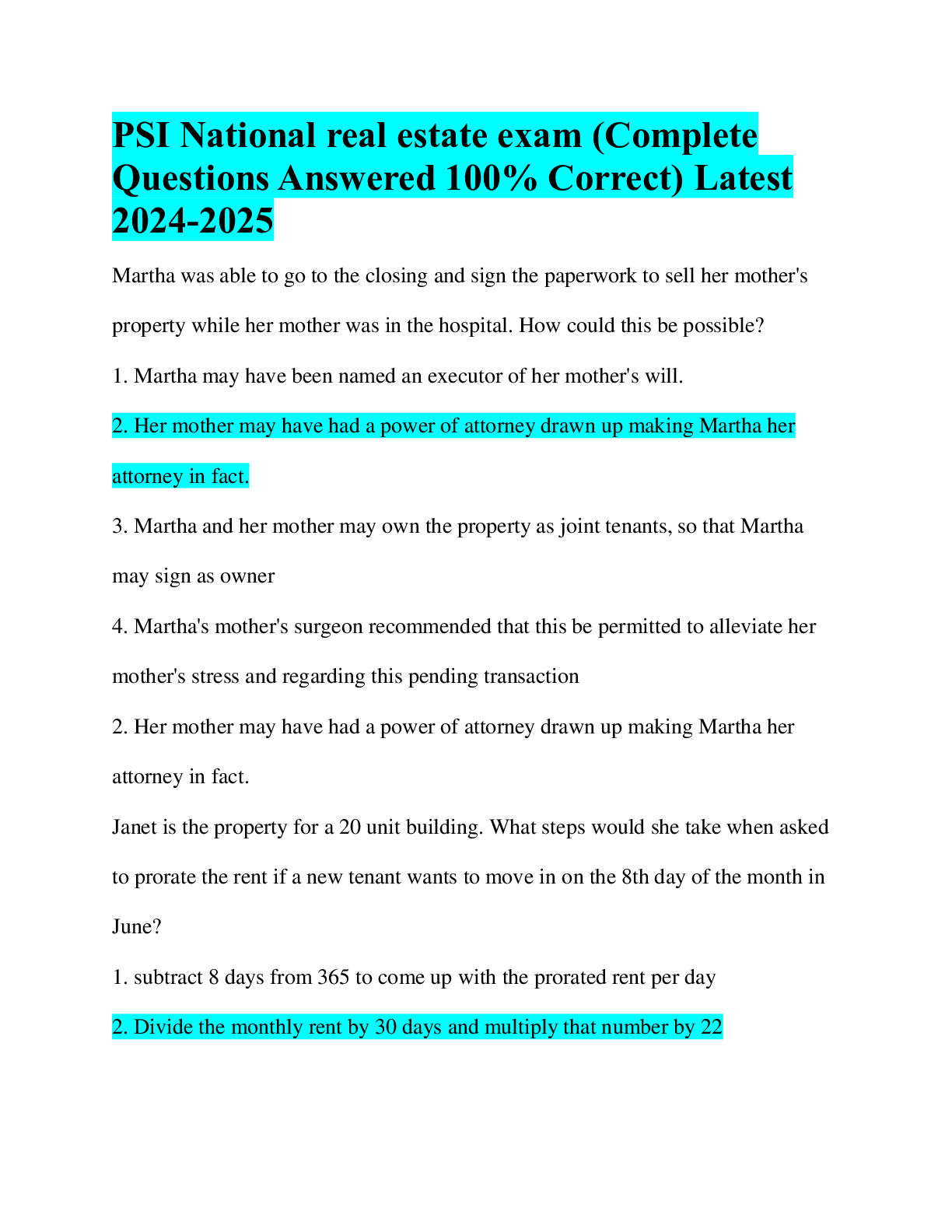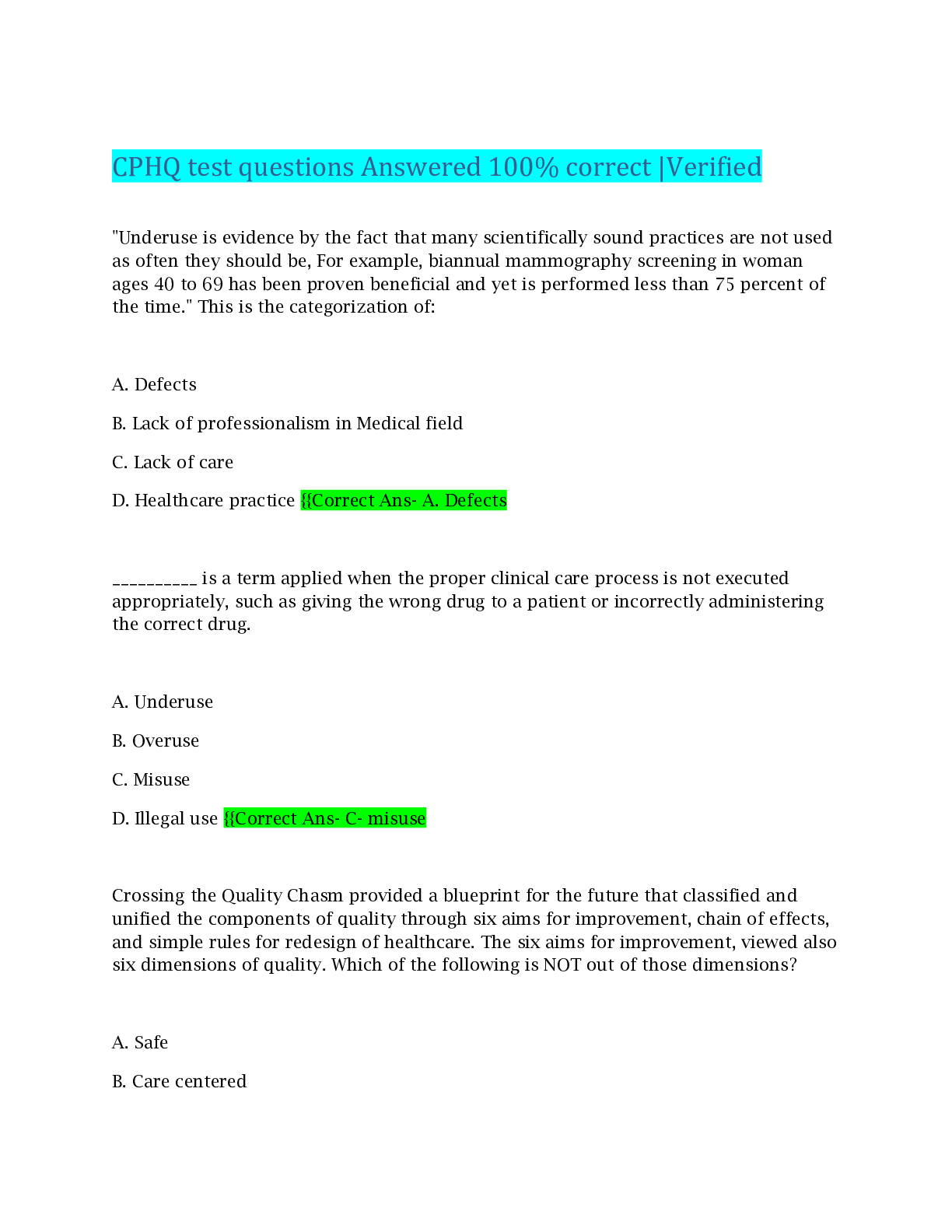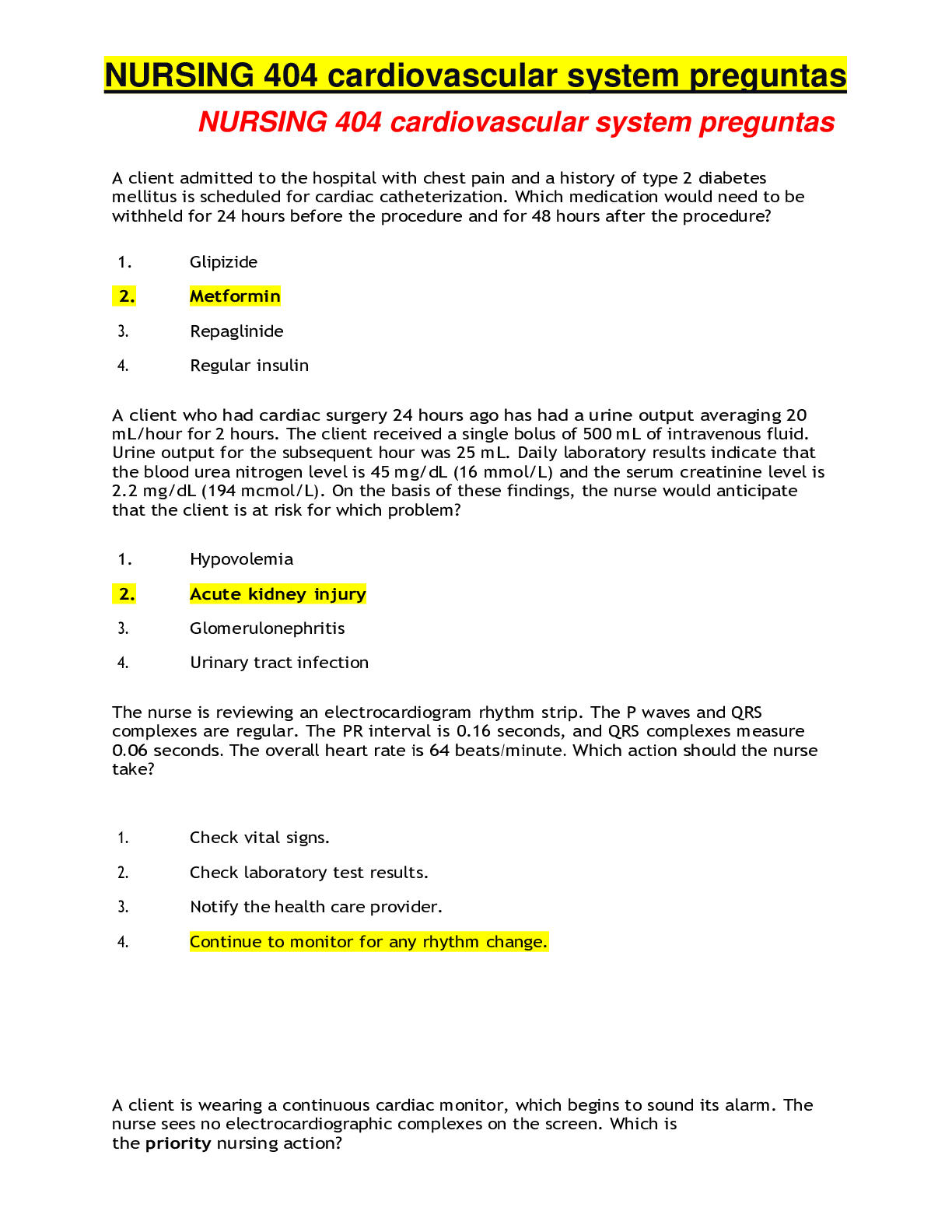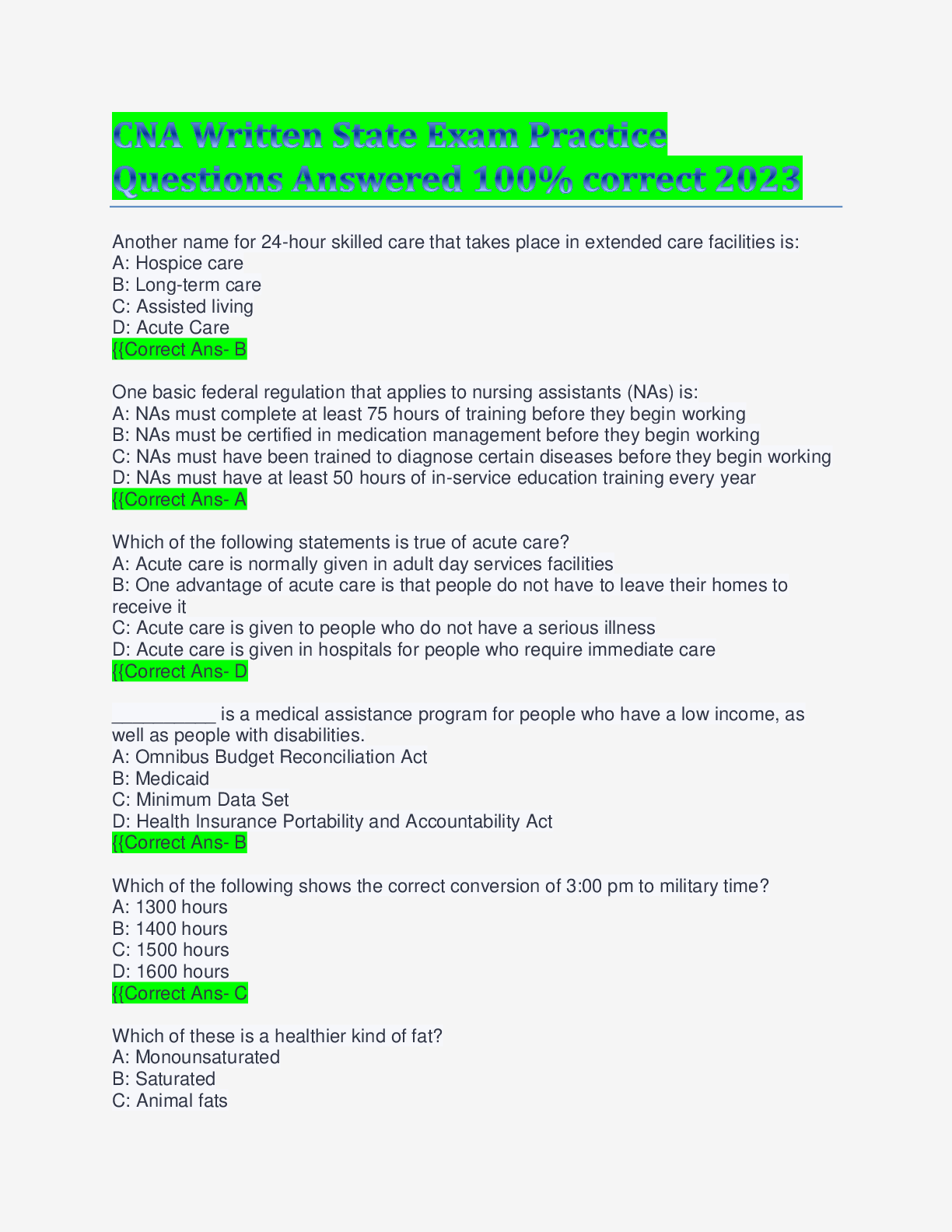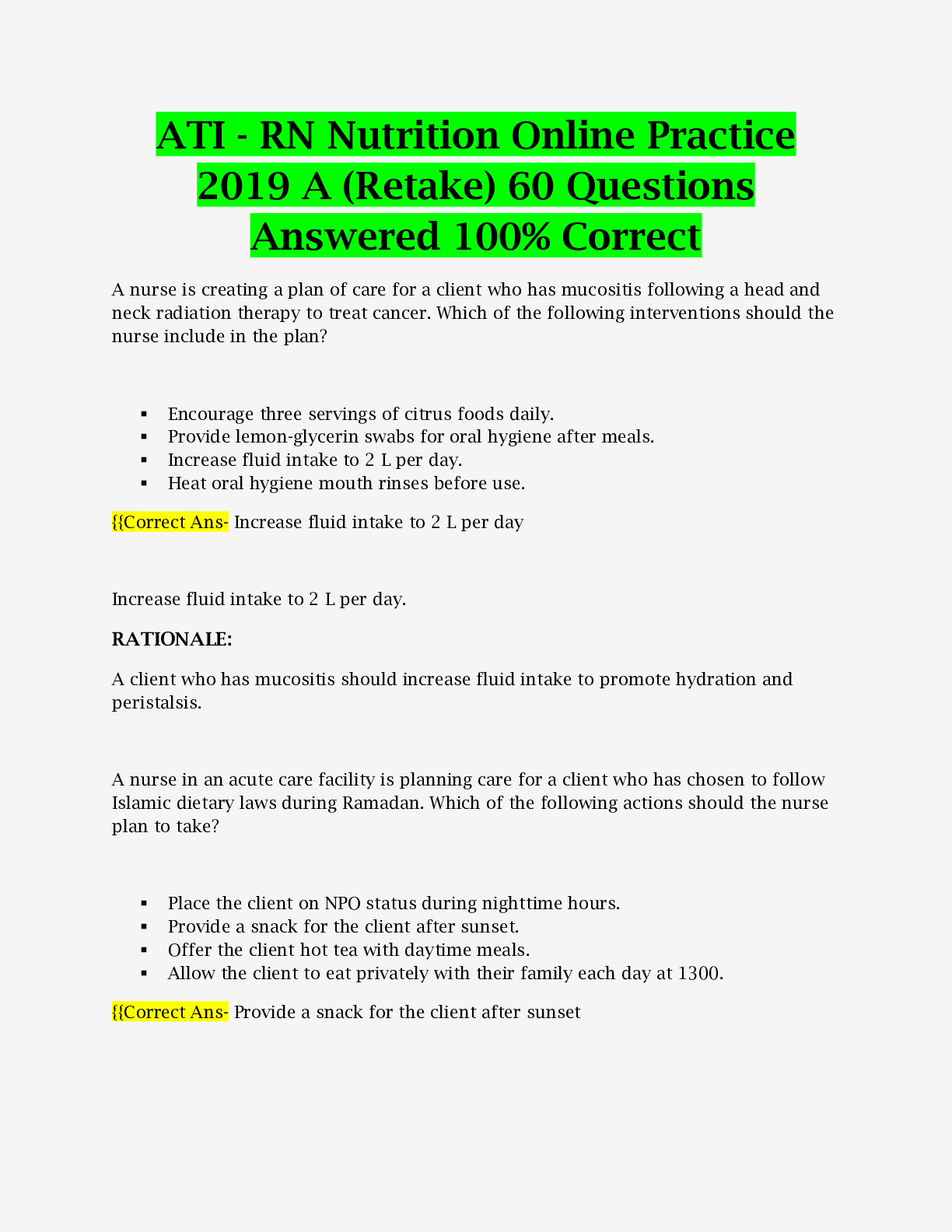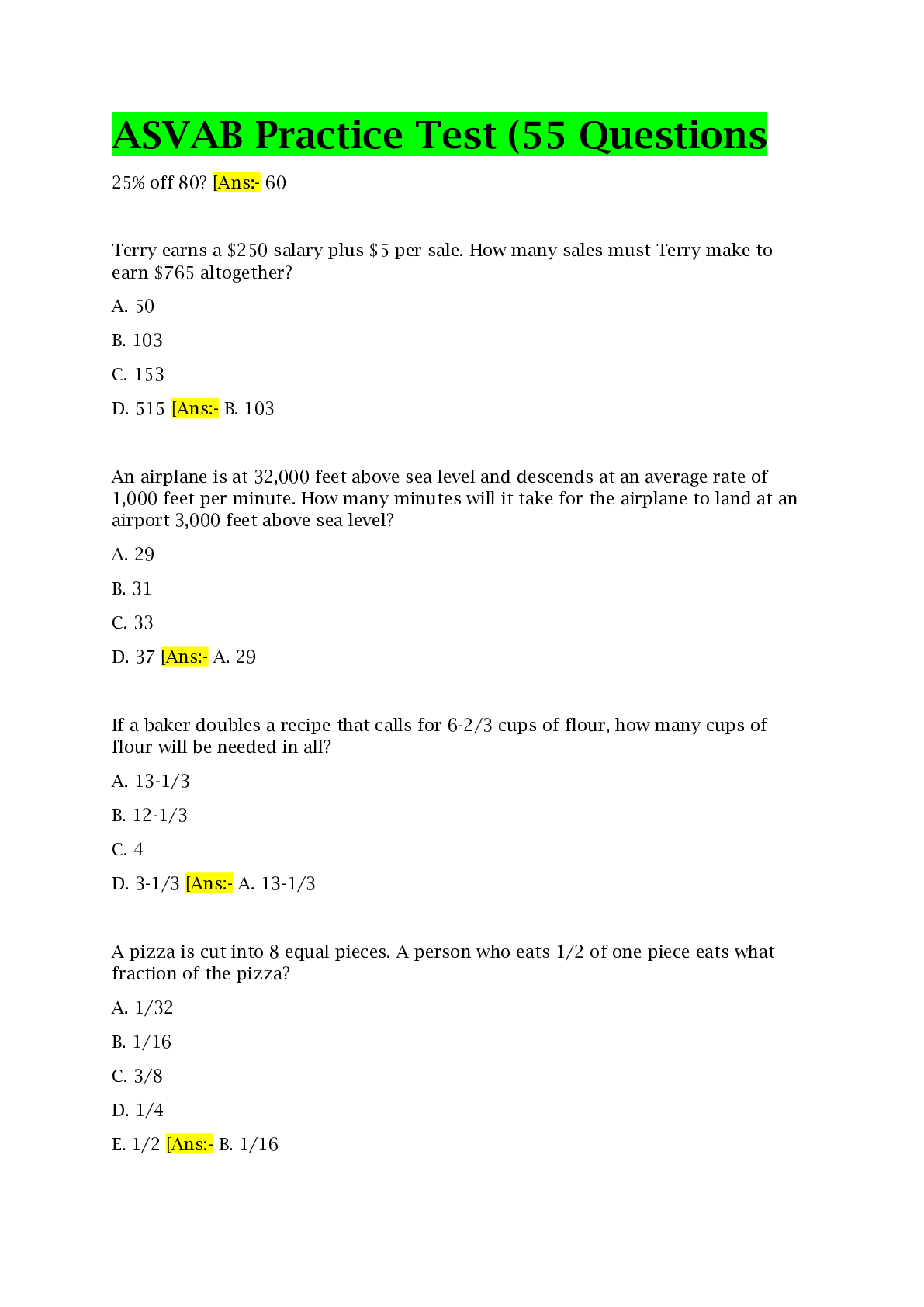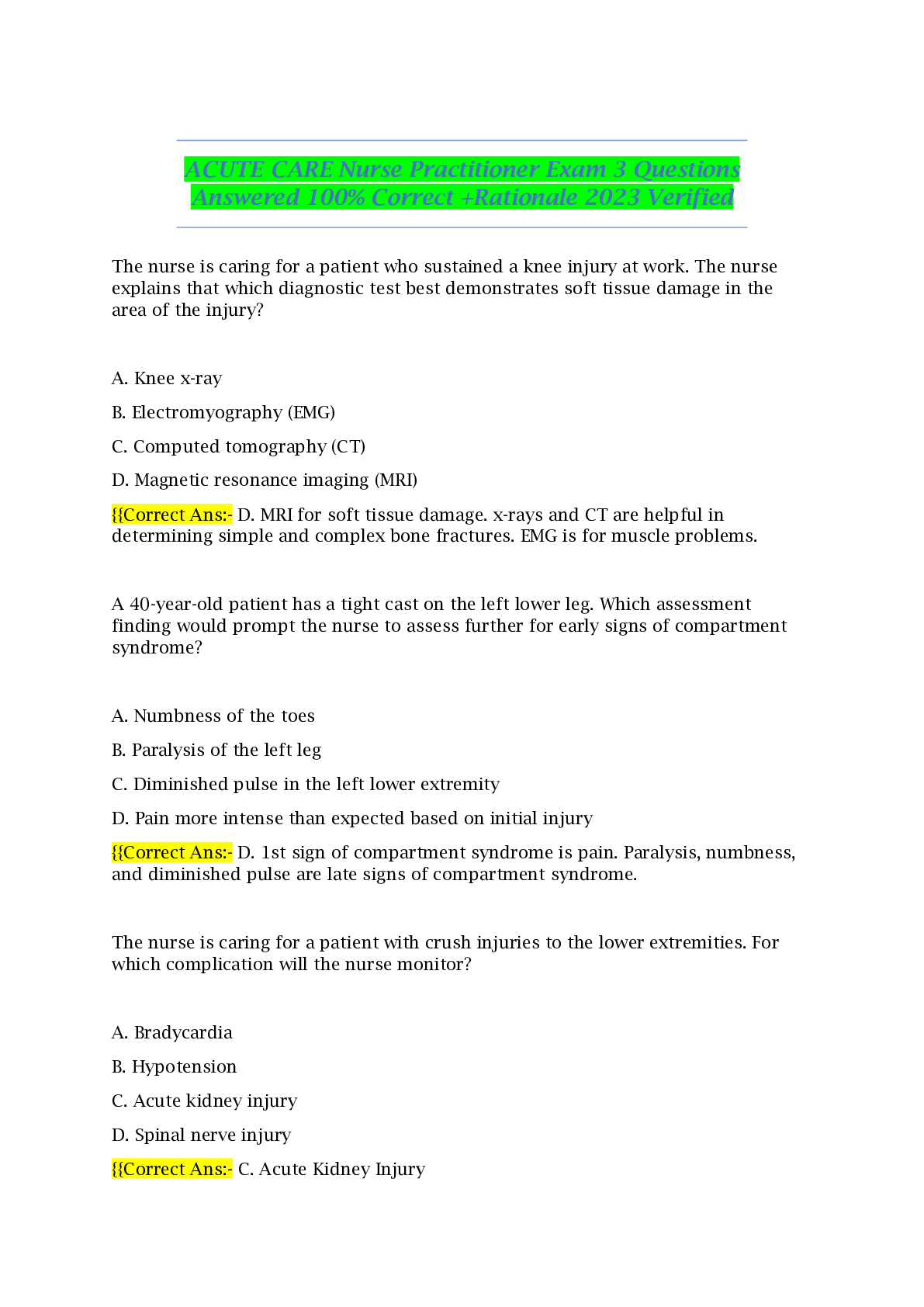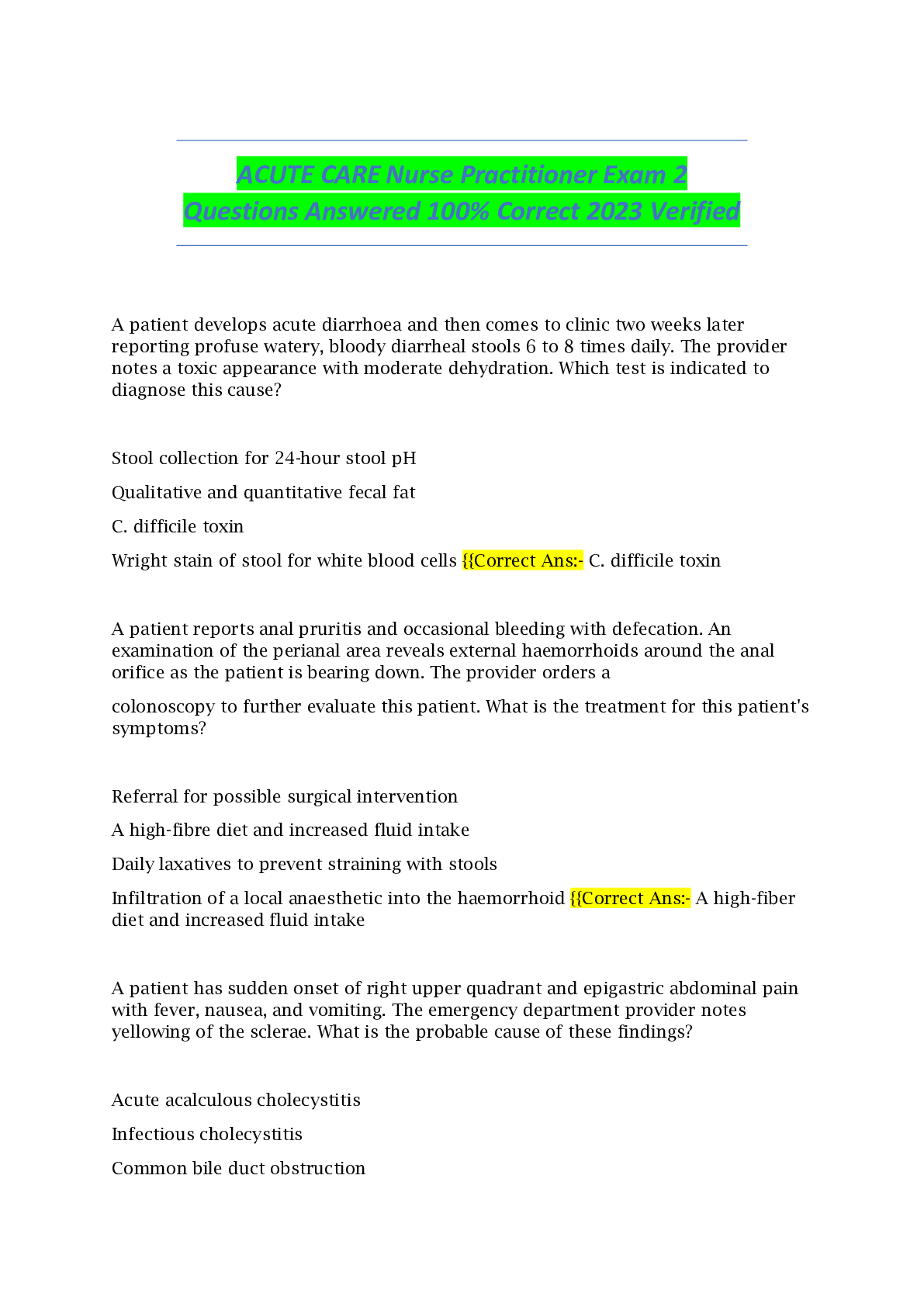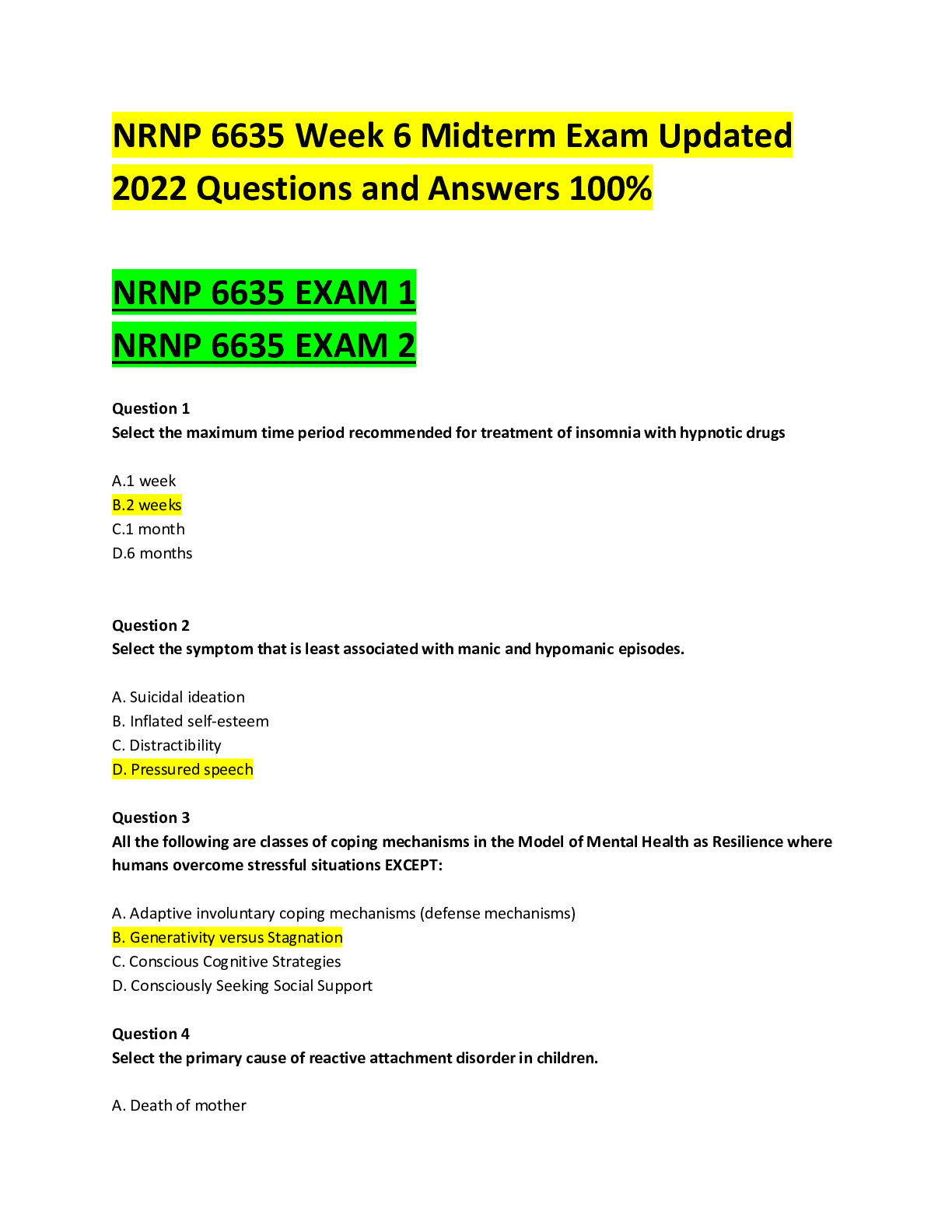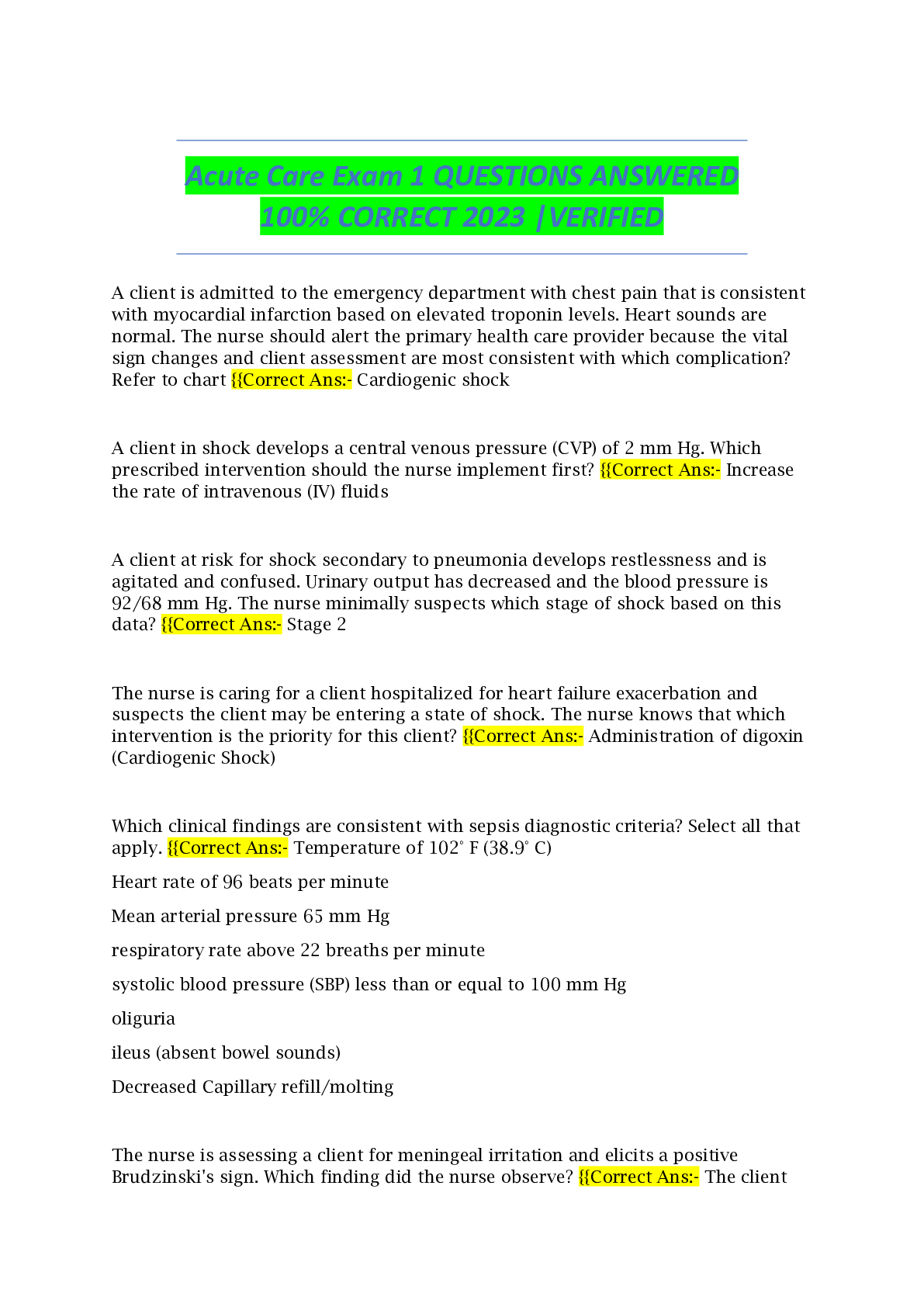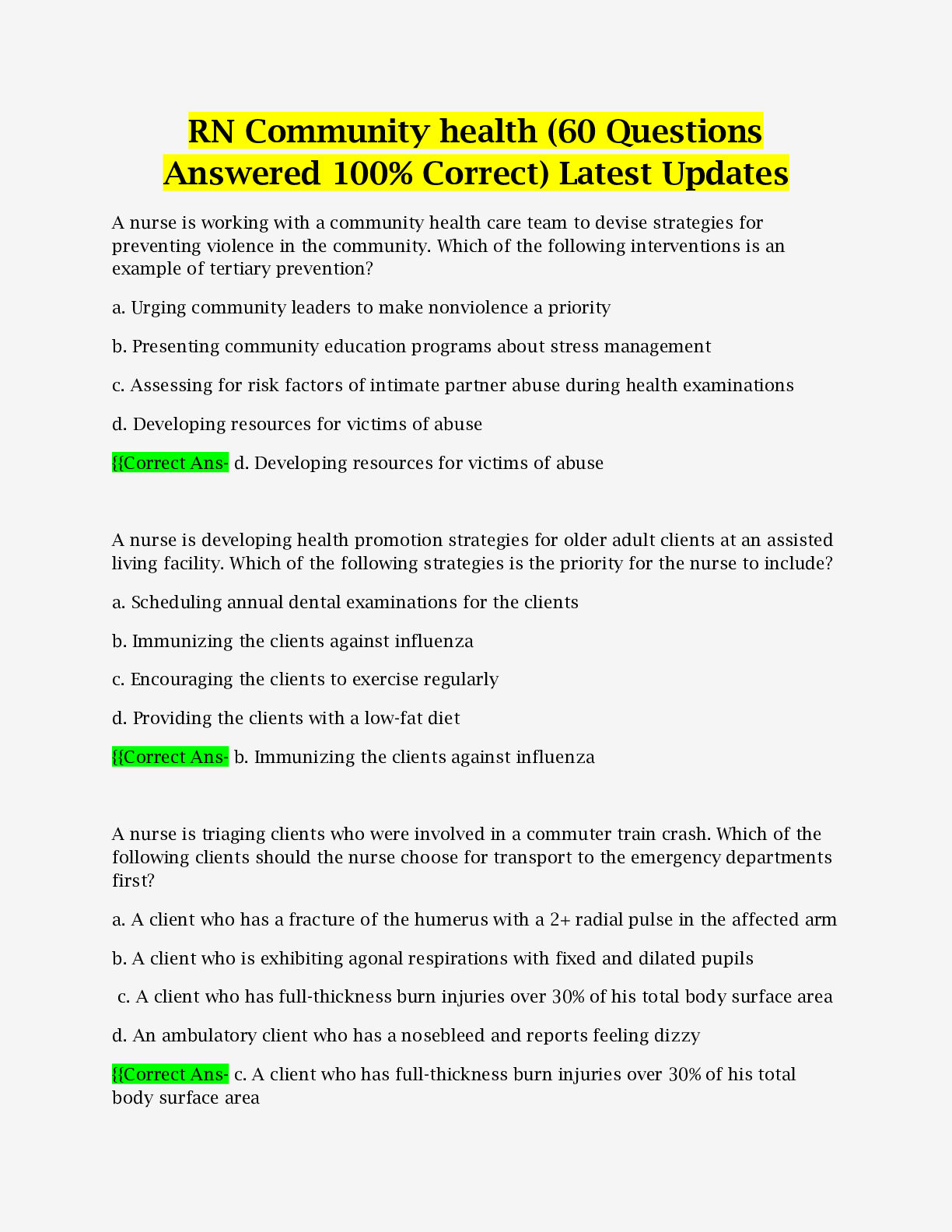ANCC – PMHNP Sample Test Questions Answered 100%
Document Content and Description Below
A patient with borderline personality disorder experiences intense anxiety when an adult psychiatric and mental health nurse practitioner goes on vacation. The best explanation for this reaction is th... at the patient: A. has failed to develop clear ego boundaries. B. has failed to master object constancy. C. is employing primitive idealization. D. is employing projective identification. - ANSWER B. has failed to master object constancy 2. A patient has been taking escitalopram (Lexapro) 10 mg daily for four weeks. Initially, the patient reported depression and suicidal thoughts. The patient's sleep, appetite, energy, and appearance have now begun to improve. Which statement applies to this patient? A. The medication should be discontinued. B. The medication should be increased. C. The patient's risk for suicide is not a concern. D. The patient's suicide potential is increased. - ANSWER D. The patient's suicide potential is increased. 3. Which behavior reflects existentially oriented therapy? A. Attempting to understand a patient's subjective world B. Challenging a patient's irrational beliefs C. Developing specific plans for change D. Establishing general group goals - ANSWER A. Attempting to understand a patient's subjective world 4. Serving as a member on a crisis team, an adult psychiatric and mental health nurse practitioner provides crisis intervention to the survivors of a plane crash. Forty-eight hours after the accident, the survivors describe vivid flashbacks, startle reactions, and disrupted sleep patterns. The nurse practitioner responds by: A. advising the survivors to consider using a hypnotic medication for a brief period. B. educating the survivors about prodromal symptoms of posttraumatic stress disorder. C. encouraging the survivors to rest during the day. D. suggesting that the survivors join a posttrauma support group. - ANSWER B. educating the survivors about prodromal symptoms of posttraumatic stress disorder. 5. An adult psychiatric and mental health nurse practitioner uses the interpersonal therapy model with a patient to establish a therapeutic alliance based upon empathy and trust. The nurse practitioner recognizes the patient's readiness to terminate therapy when the patient demonstrates: A. an understanding that leaving a significant other may be painful, but also presents an opportunity for growth. B. breathing and muscle relaxation exercises that decrease muscle tension and anxiety. C. free association, and considers the nurse practitioner's interpretation of the patient's dreams. D. new adaptive skills and responses after completing "homework assignments." - ANSWER A. an understanding that leaving a significant other may be painful, but also presents an opportunity for growth. 6. An Hispanic patient informs an adult psychiatric and mental health nurse practitioner during a wellness visit that he or she occasionally uses hot chili juice to relieve a "nervous condition." The patient denies any complaints related to this practice. The nurse practitioner's response is to: A. actively discourage the patient from continuing this treatment. B. offer a medication to treat the nervous condition. C. suggest an alternative food to relieve the nervous condition. D. view this as a self-care ritual that needs to be preserved. - ANSWER D. view this as a self-care ritual that needs to be preserved. 7. Before an older adult patient initiates pharmacotherapy with a medication that is cleared by the kidneys, an adult psychiatric and mental health nurse practitioner assesses the patient's: A. blood urea nitrogen level. B. creatinine clearance. C. specific gravity. D. urinary sediment. - ANSWER B. creatinine clearance. 8. An adult psychiatric and mental health nurse practitioner uses a cognitive-behavioral approach to help an adolescent patient change self-defeating behaviors. After identifying the initial stressor that is causing the inappropriate behavior, the therapeutic intervention is to identify: A. alternative positive responses to the stressor. B. negative consequences of the behavioral response to the stressor. C. possible outcomes of alternative responses. D. rational and irrational beliefs about the stressor. - ANSWER D. rational and irrational beliefs about the stressor. 9. Which characteristic of fluoxetine (Prozac) provides the greatest degree of safety for patients who have severe depression? A. Greater efficacy than tricyclic antidepressants B. Less potential for drug interaction C. Less potential for injury with intentional overdose D. Less potential for suicidal thinking - ANSWER C. Less potential for injury with intentional overdose 10. When lobbying a local congressional representative to include nurse practitioners in reimbursement for services in all areas of the country, an adult psychiatric and mental health nurse practitioner emphasizes the: A. ability of nurse practitioners to provide health care that patients need. B. fact that nurse practitioners are caring in their patient care delivery. C. importance of broadening the scope of nursing practice. D. necessity of offering equivalent services both to urban and rural patients. - ANSWER A. ability of nurse practitioners to provide health care that patients need. 11. For 12 years, a 65-year-old patient with bipolar affective disorder has been treated with lithium (Eskalith) 900 mg daily. When oral hydrochlorothiazide (HCTZ) 12.5 mg daily is added for hypertension, the patient develops nausea, vomiting, ataxia, and muscle weakness and the patient's serum lithium level is 2.0 mEq/L. The interaction of the lithium and the thiazide diuretic has induced: A. hypokalemia. B. hyponatremia. C. increased renal clearance of lithium. D. reduced renal clearance of lithium. - ANSWER D. reduced renal clearance of lithium. 12. Which statement by a male patient who has posttraumatic stress disorder (PTSD) and chronic persistent suicidal ideation indicates a need for hospital assessment? A. "I feel so bad all the time. I wish I were dead." B. "My wife is so scared that she has taken all my guns out of the house." C. "My wife just left with the children. I have no one left and no future." D. "Those medications you gave me make me feel worse. I stopped taking them." - ANSWER C. "My wife just left with the children. I have no one left and no future." 13. A male patient informs an adult psychiatric and mental health nurse practitioner that he has not slept in three days, has poor concentration, and denies fatigue. The patient's diagnosis is: A. attention-deficit hyperactivity disorder. B. bipolar disorder. C. panic disorder. D. primary insomnia. - ANSWER B. bipolar disorder. [Show More]
Last updated: 1 year ago
Preview 1 out of 6 pages
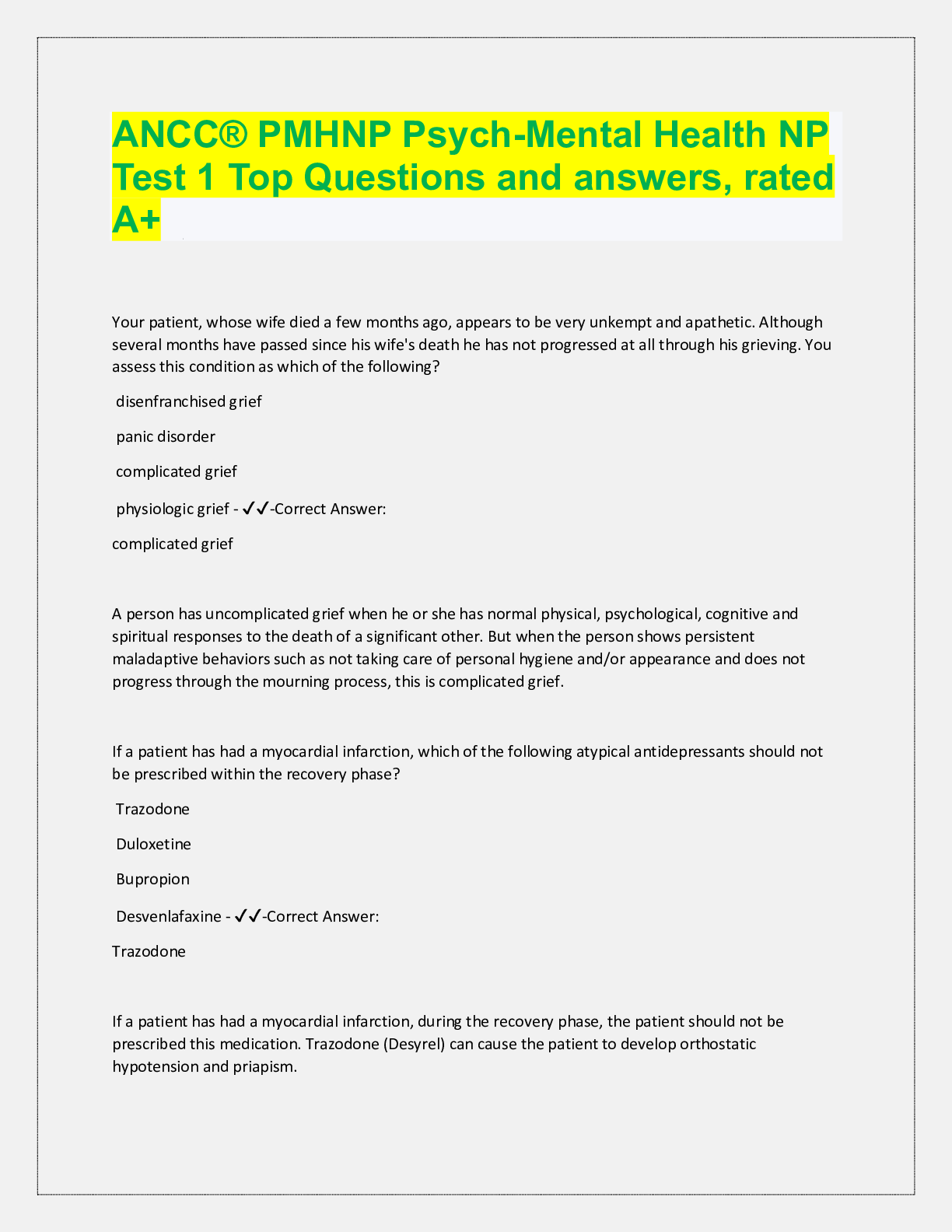
Reviews( 0 )
Document information
Connected school, study & course
About the document
Uploaded On
Nov 19, 2022
Number of pages
6
Written in
Additional information
This document has been written for:
Uploaded
Nov 19, 2022
Downloads
0
Views
37

